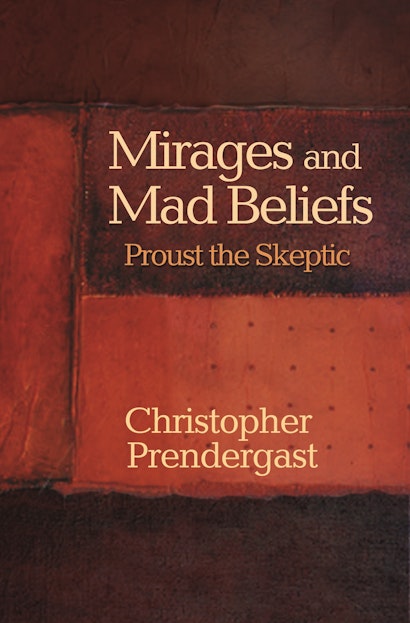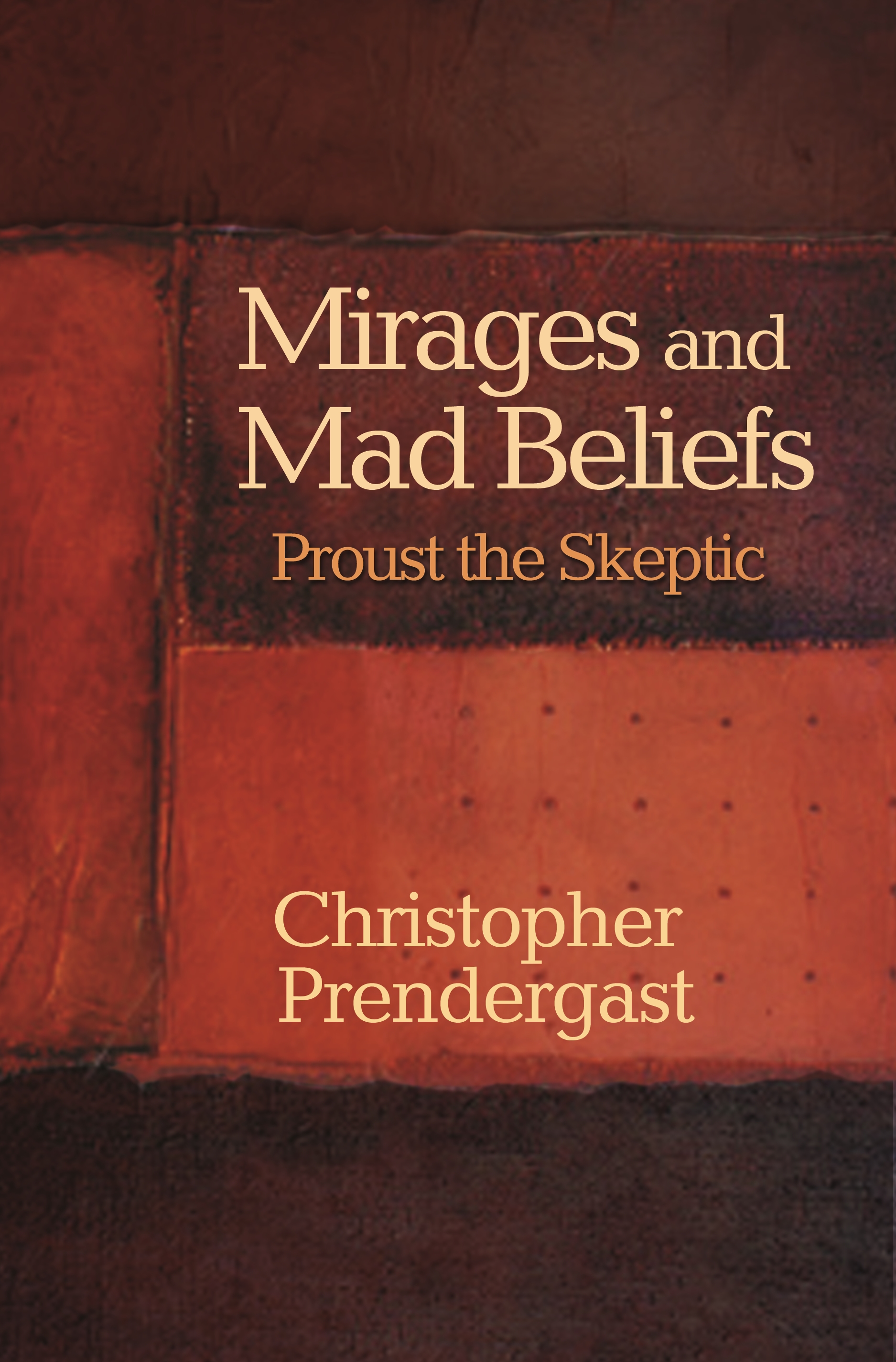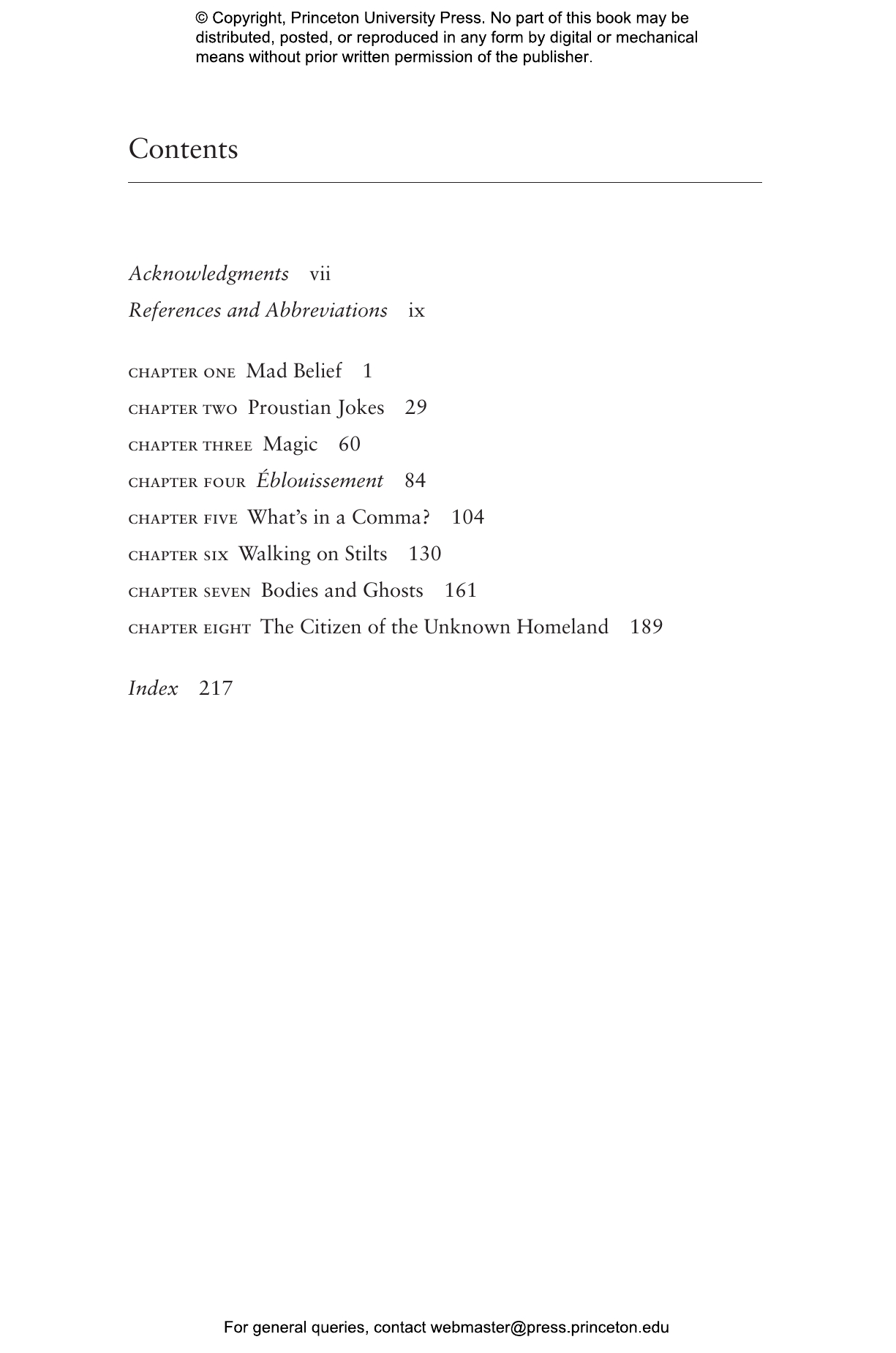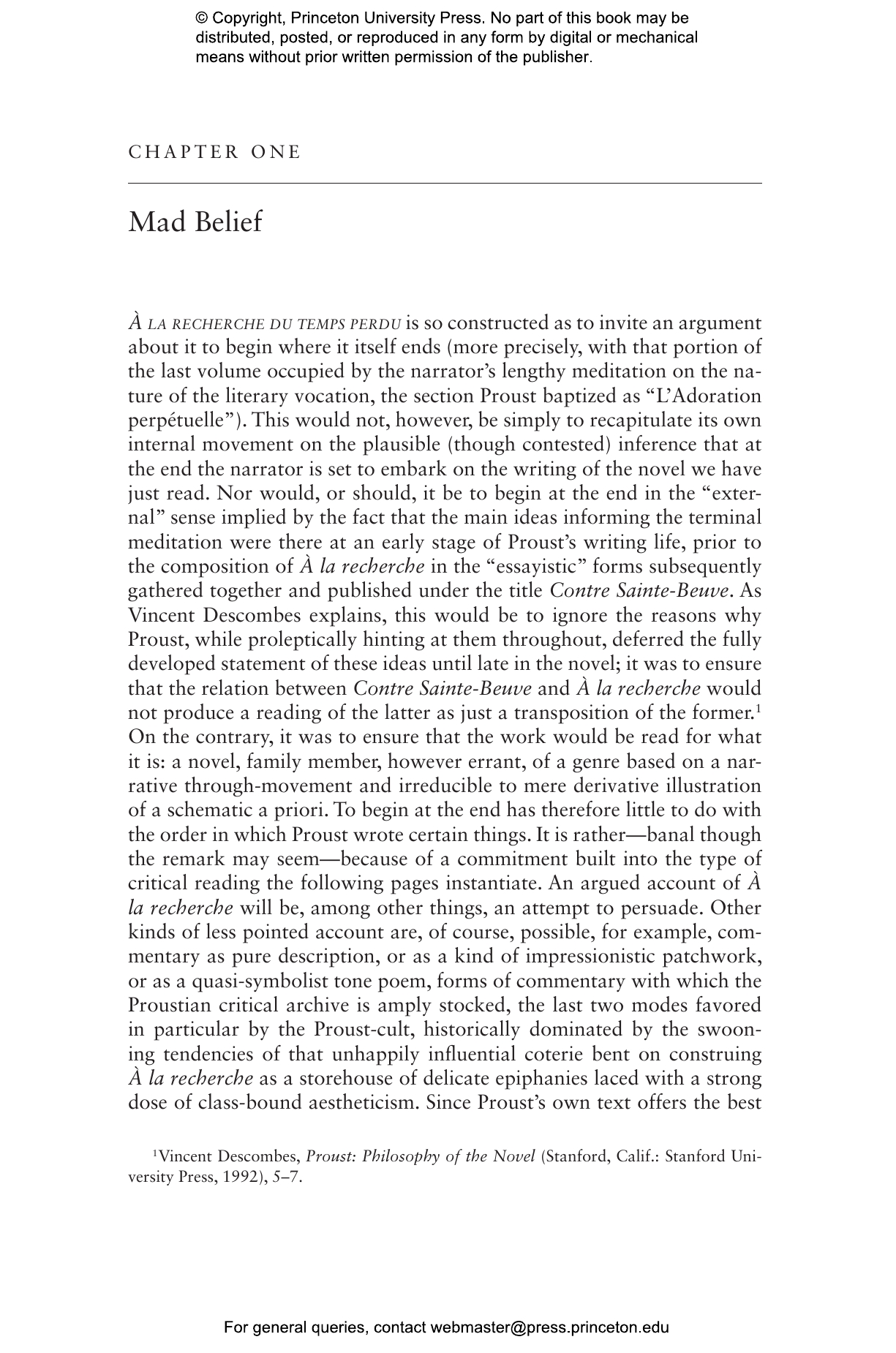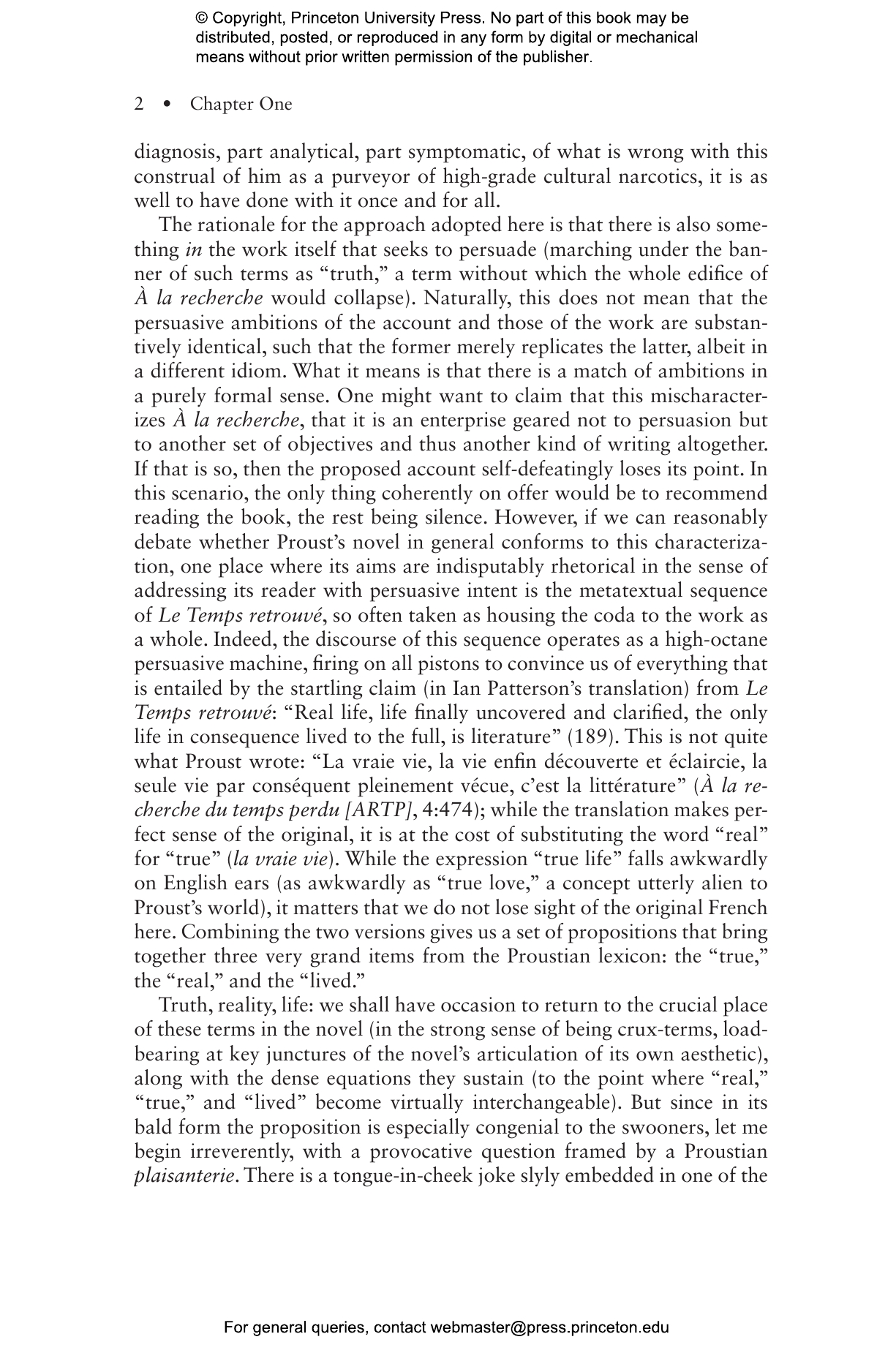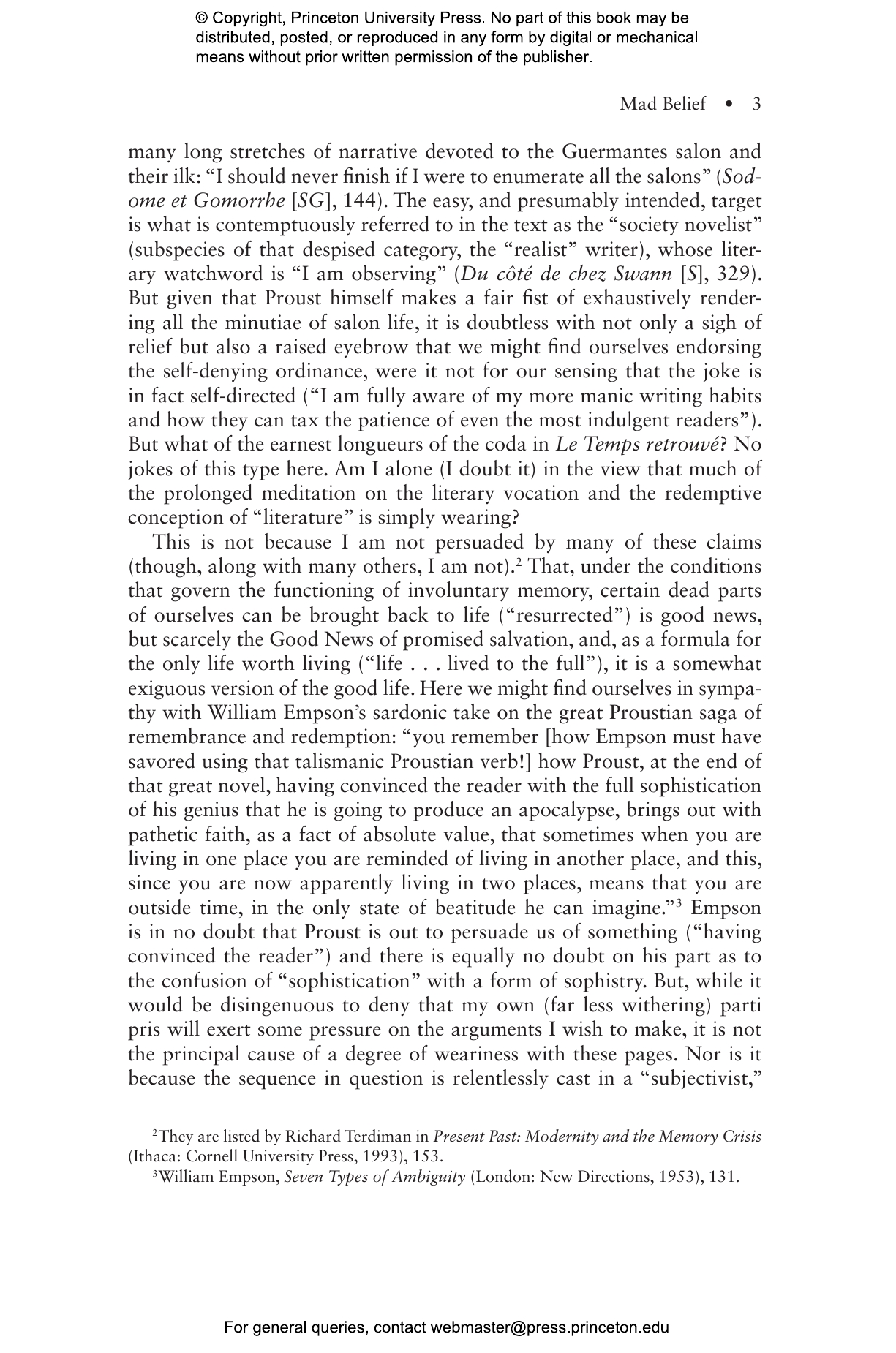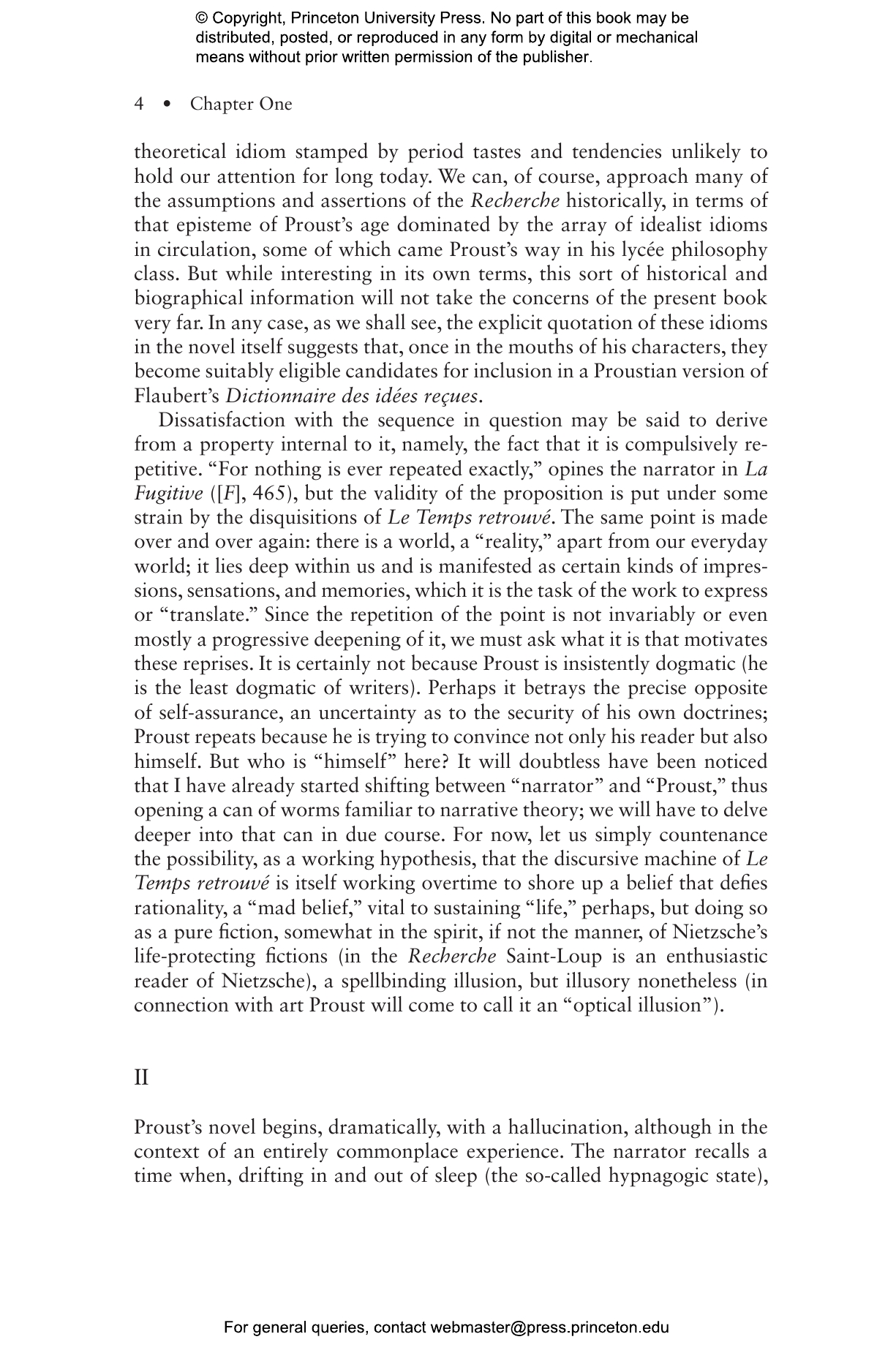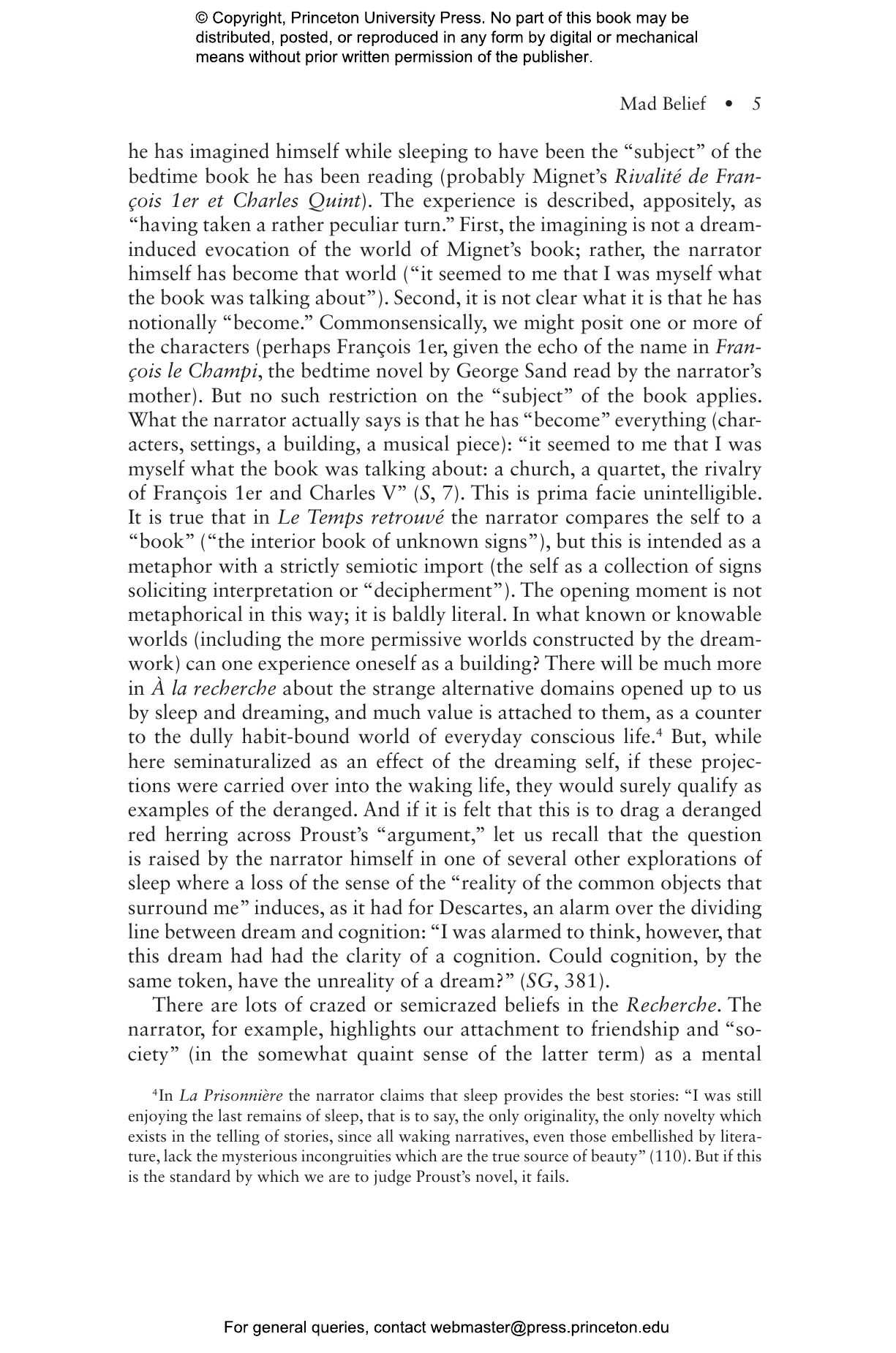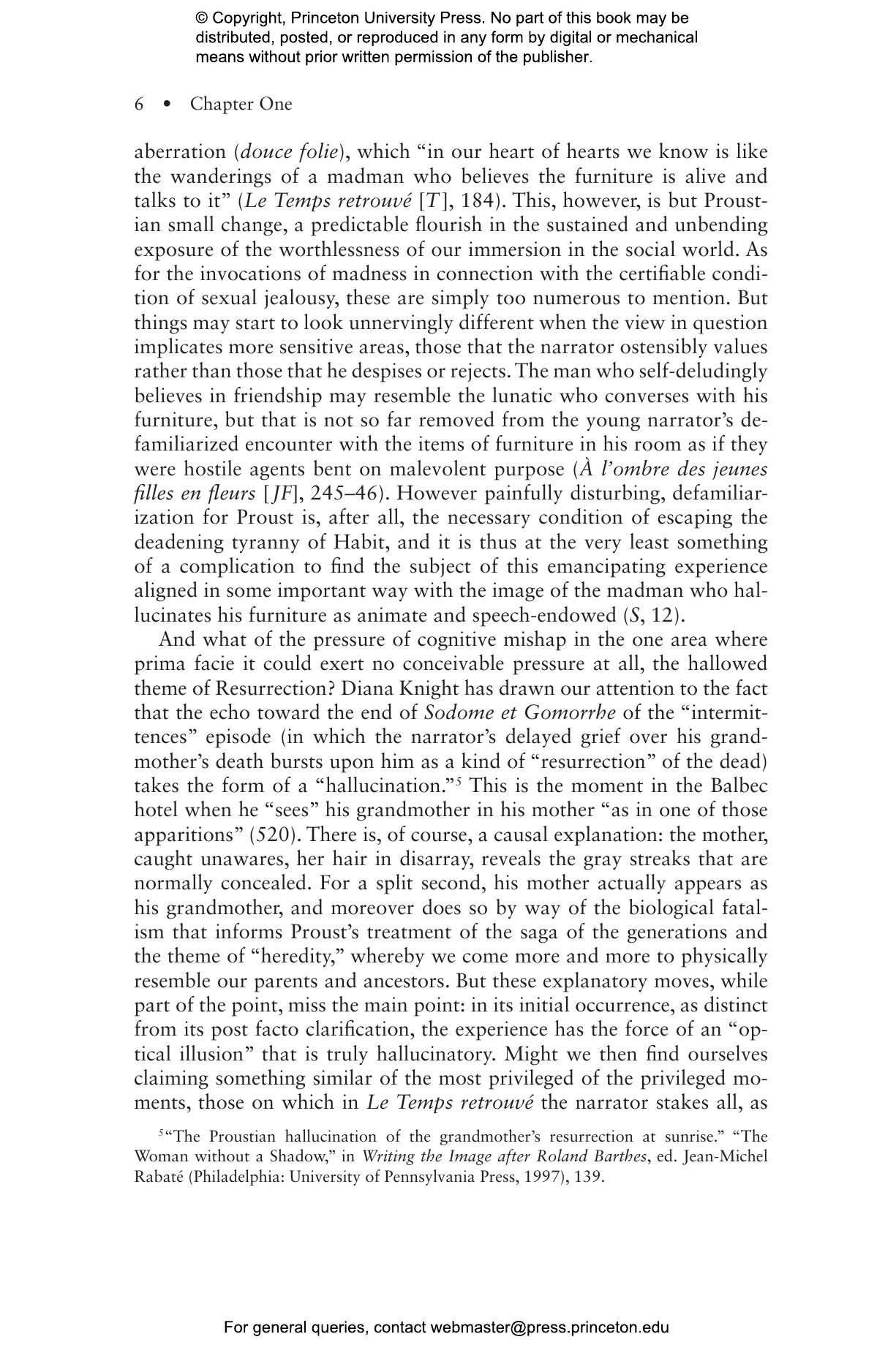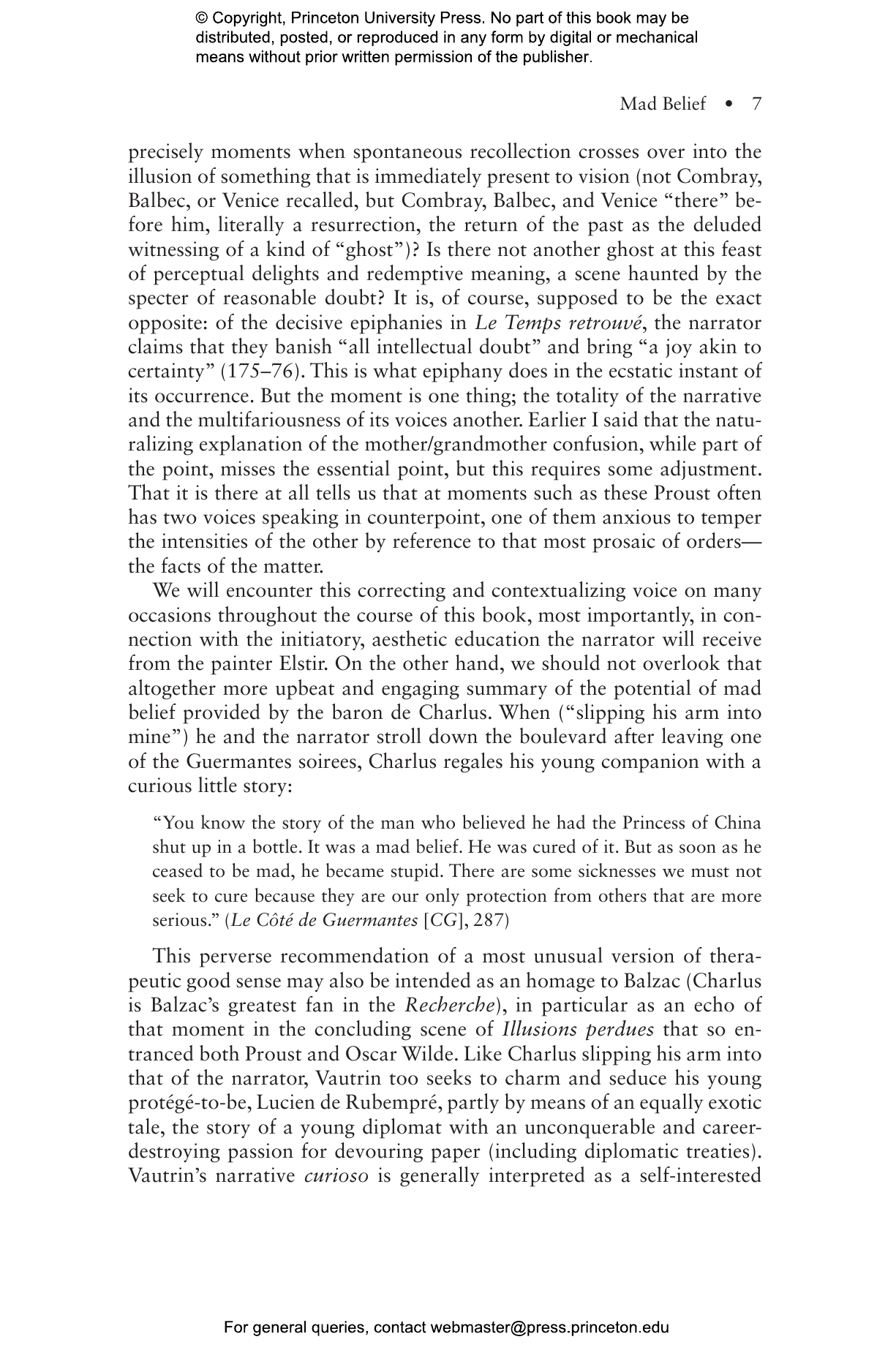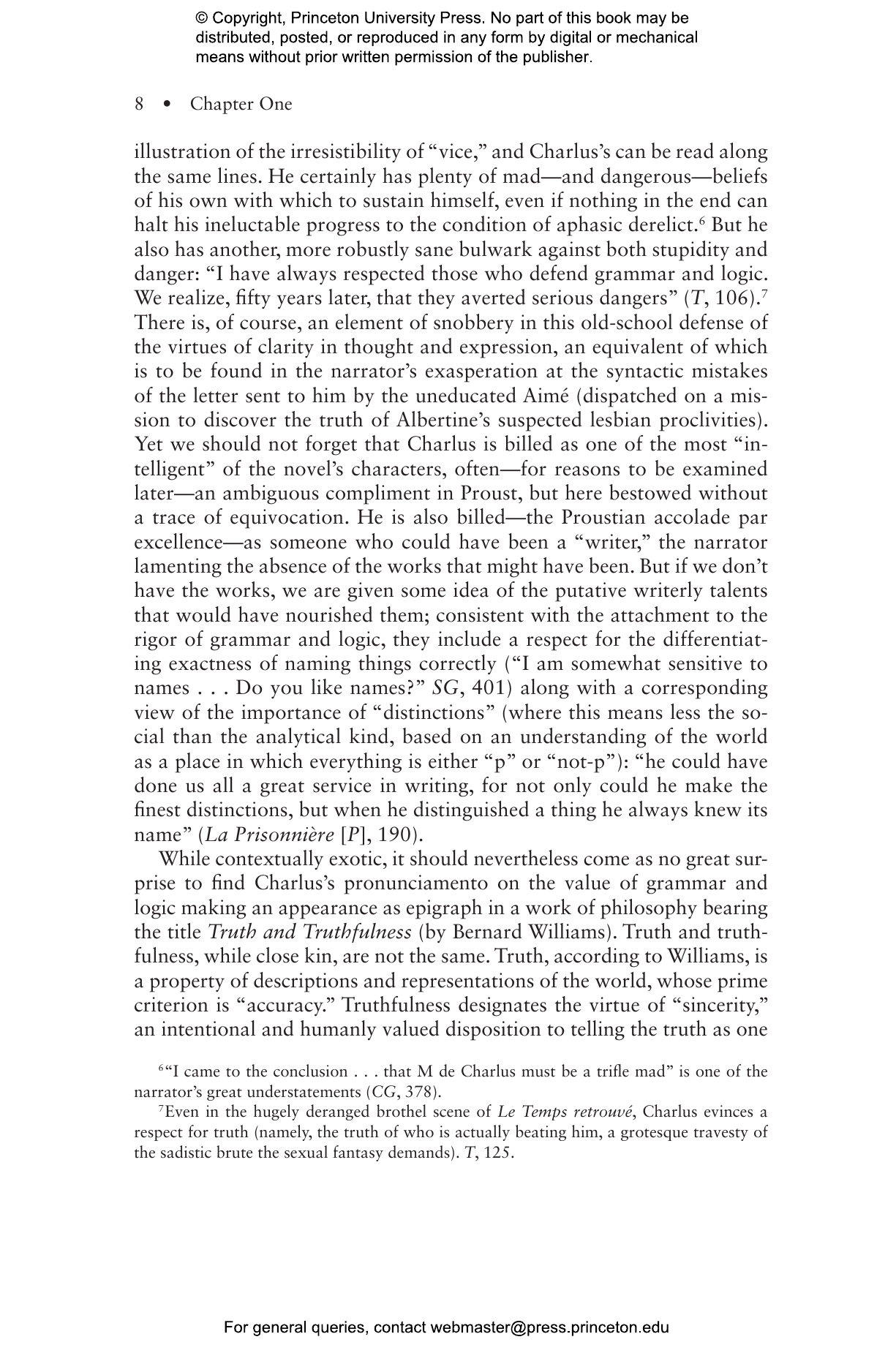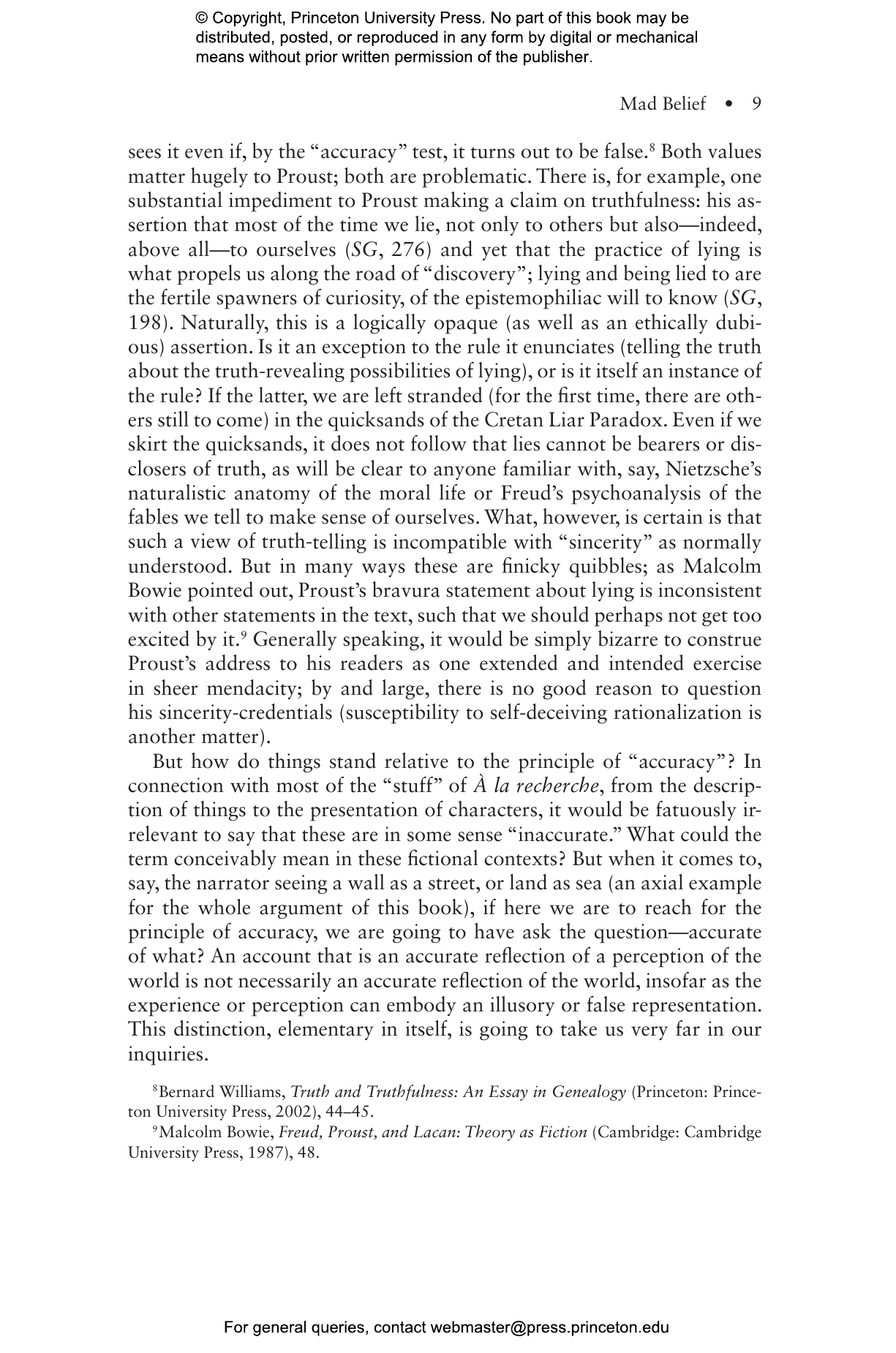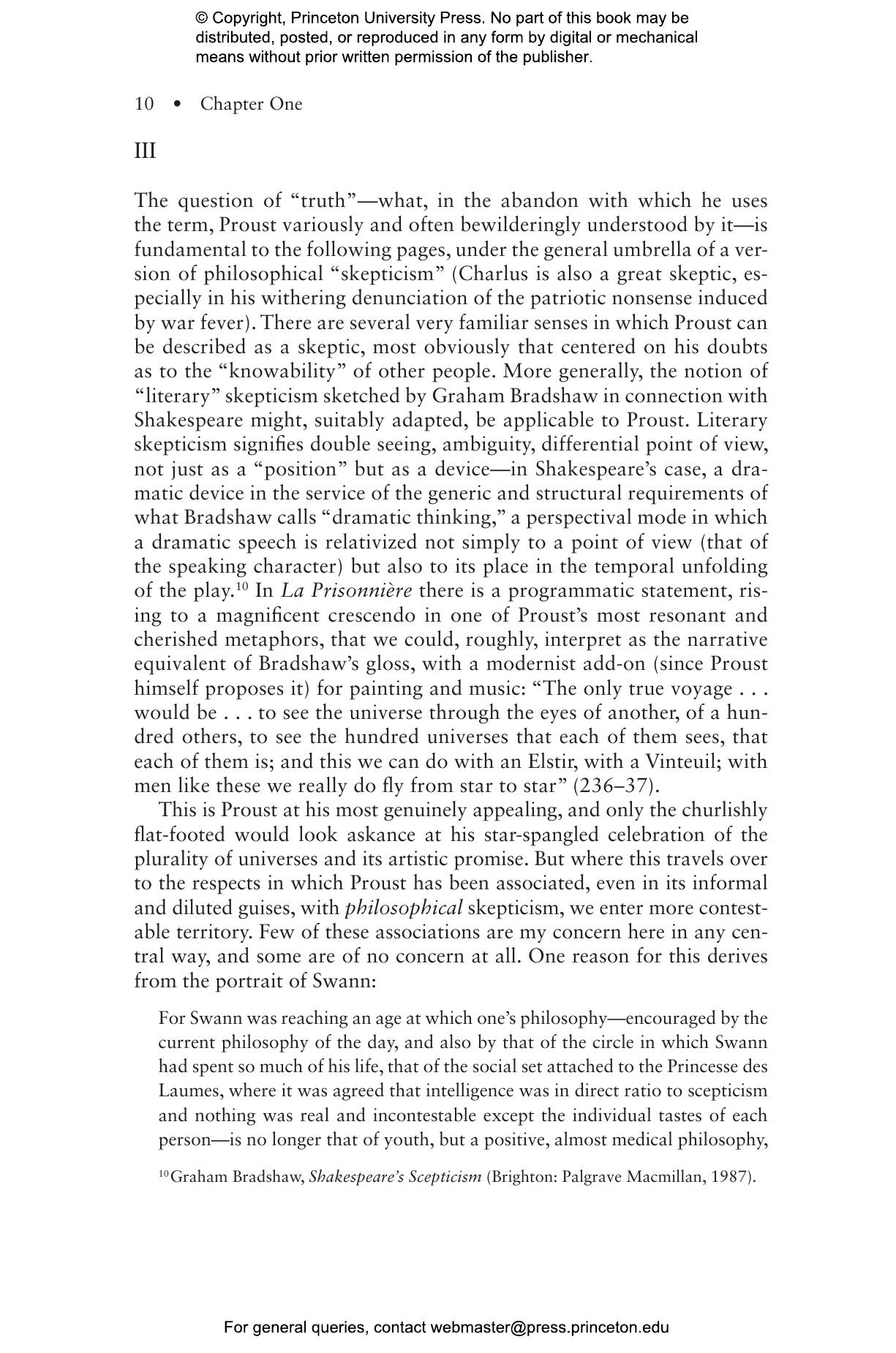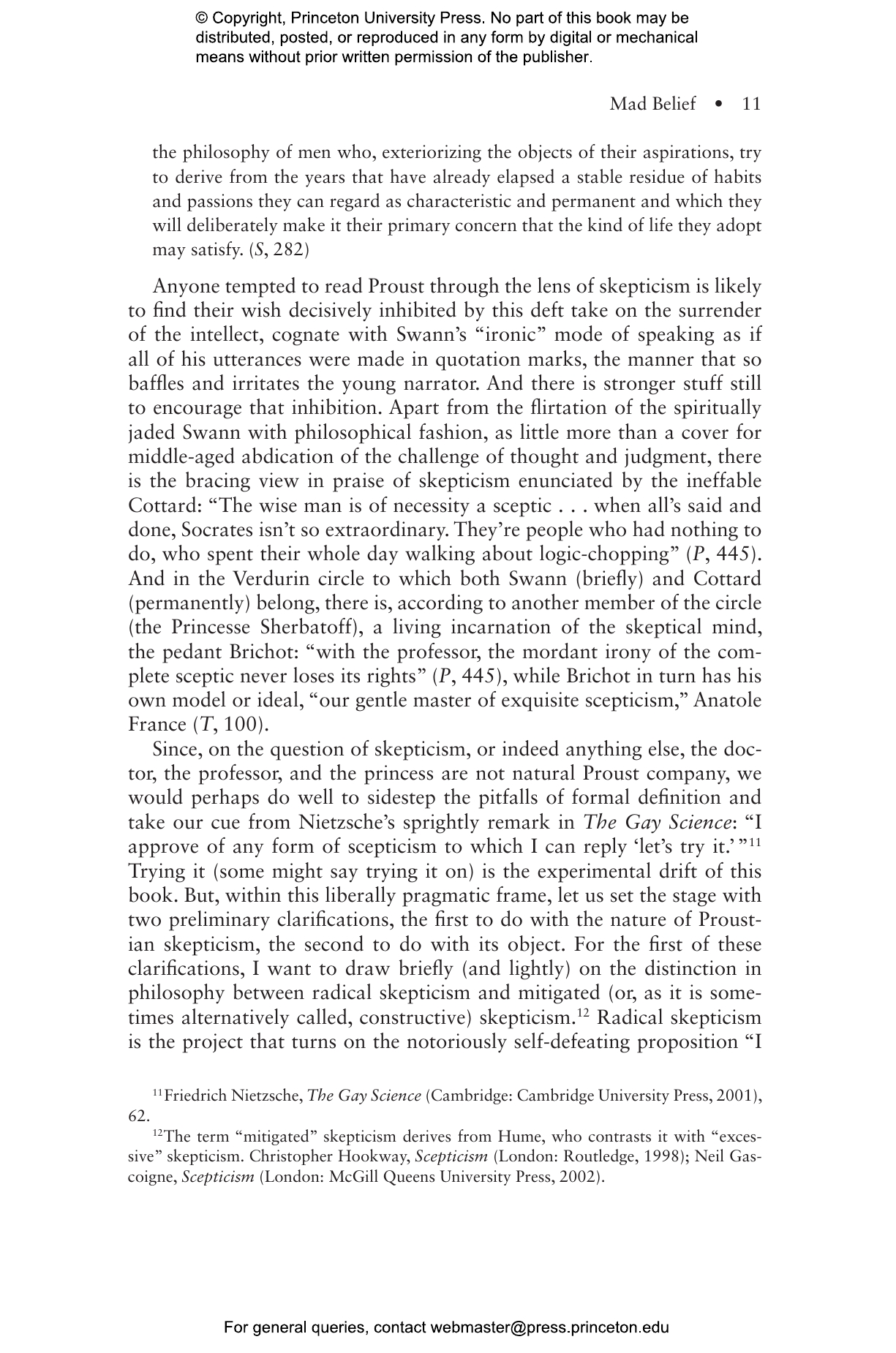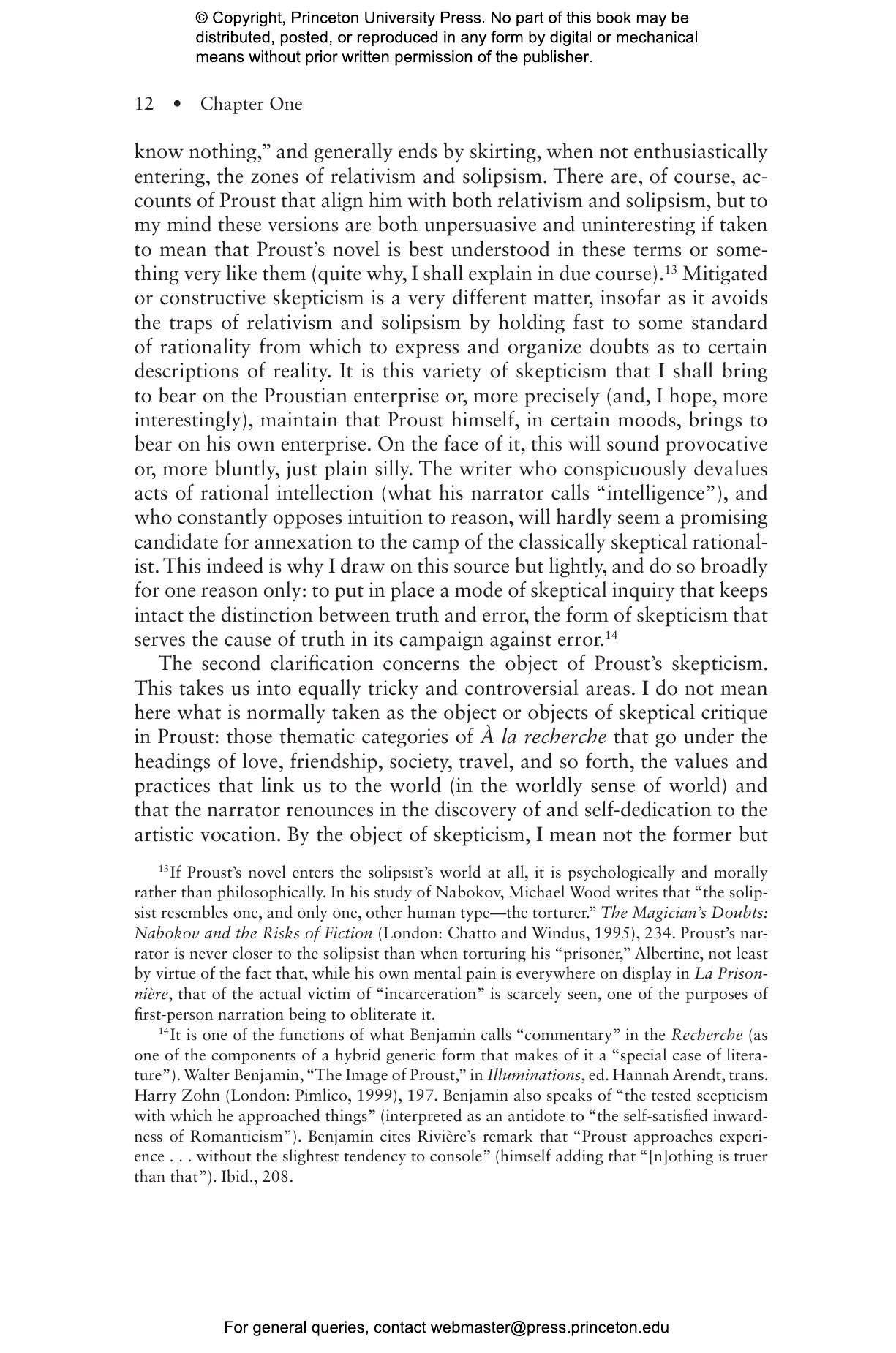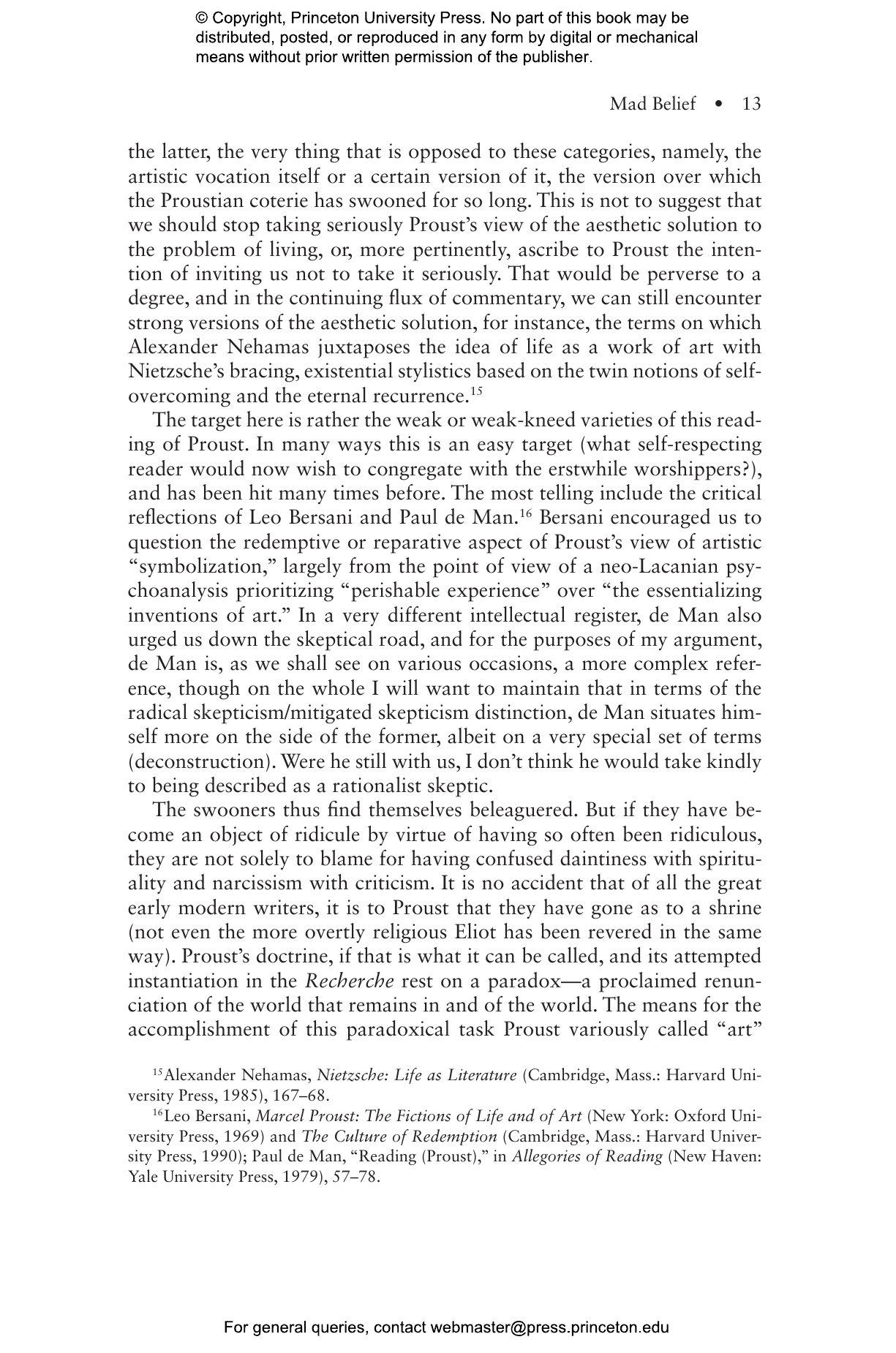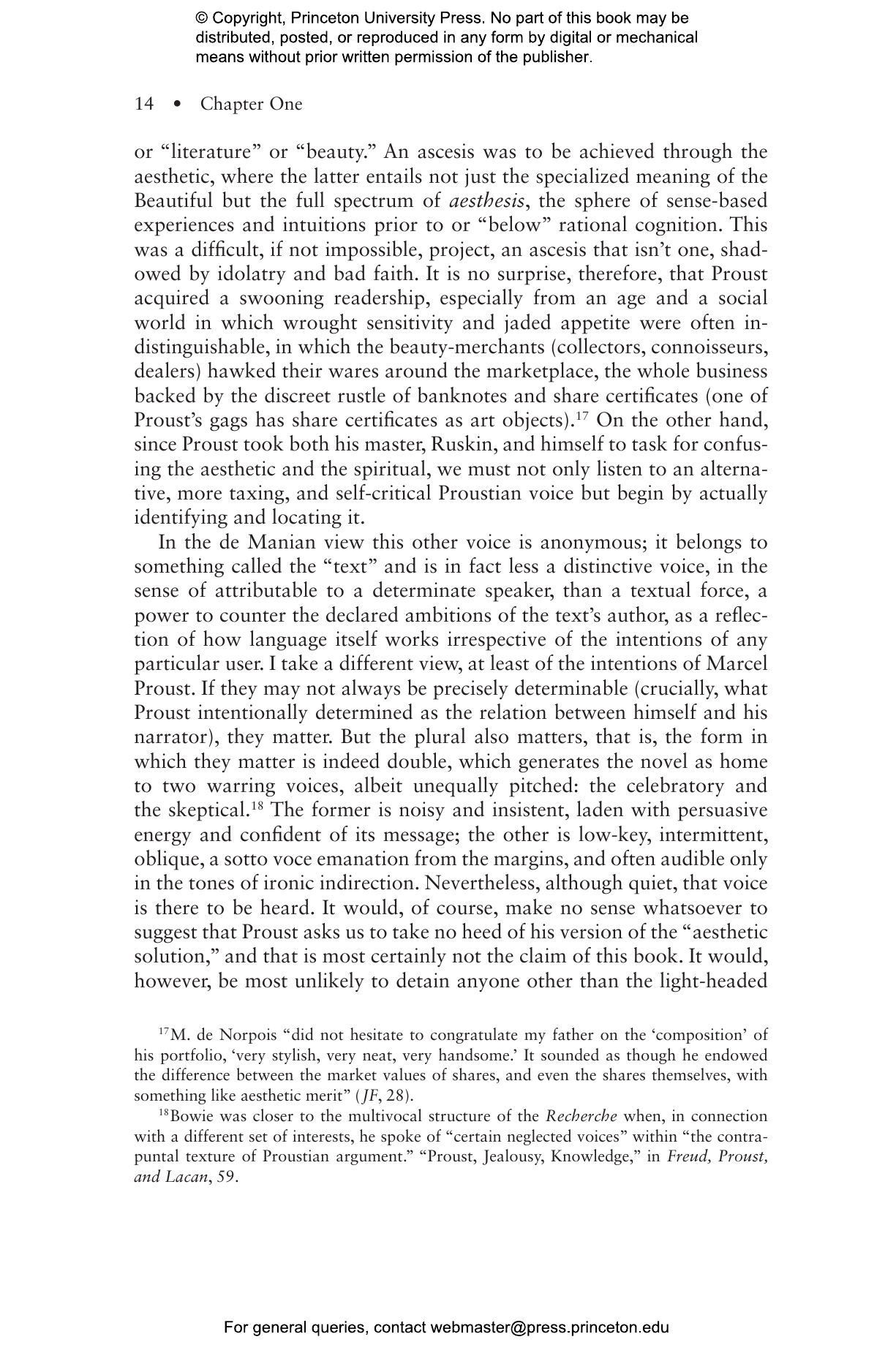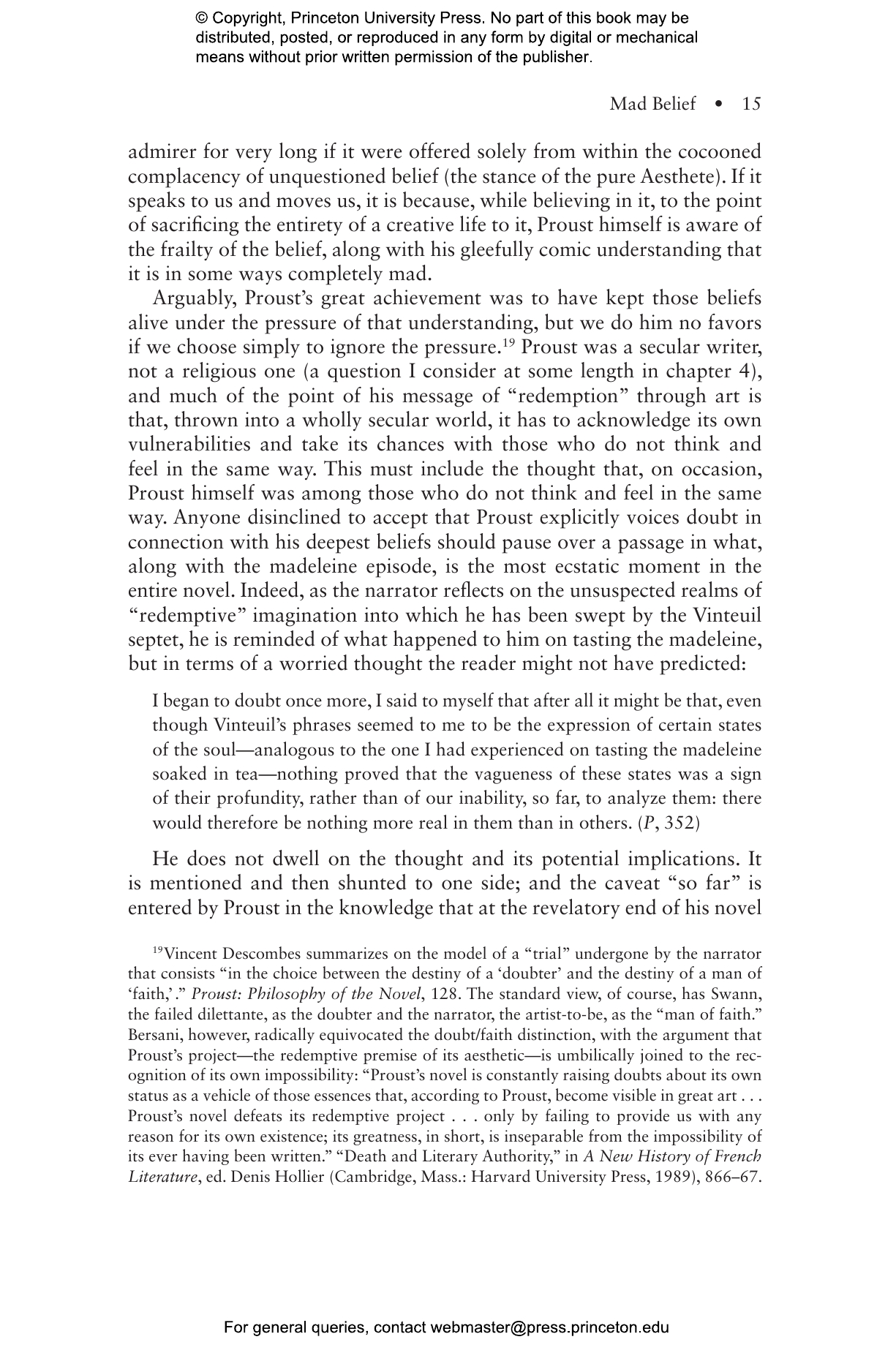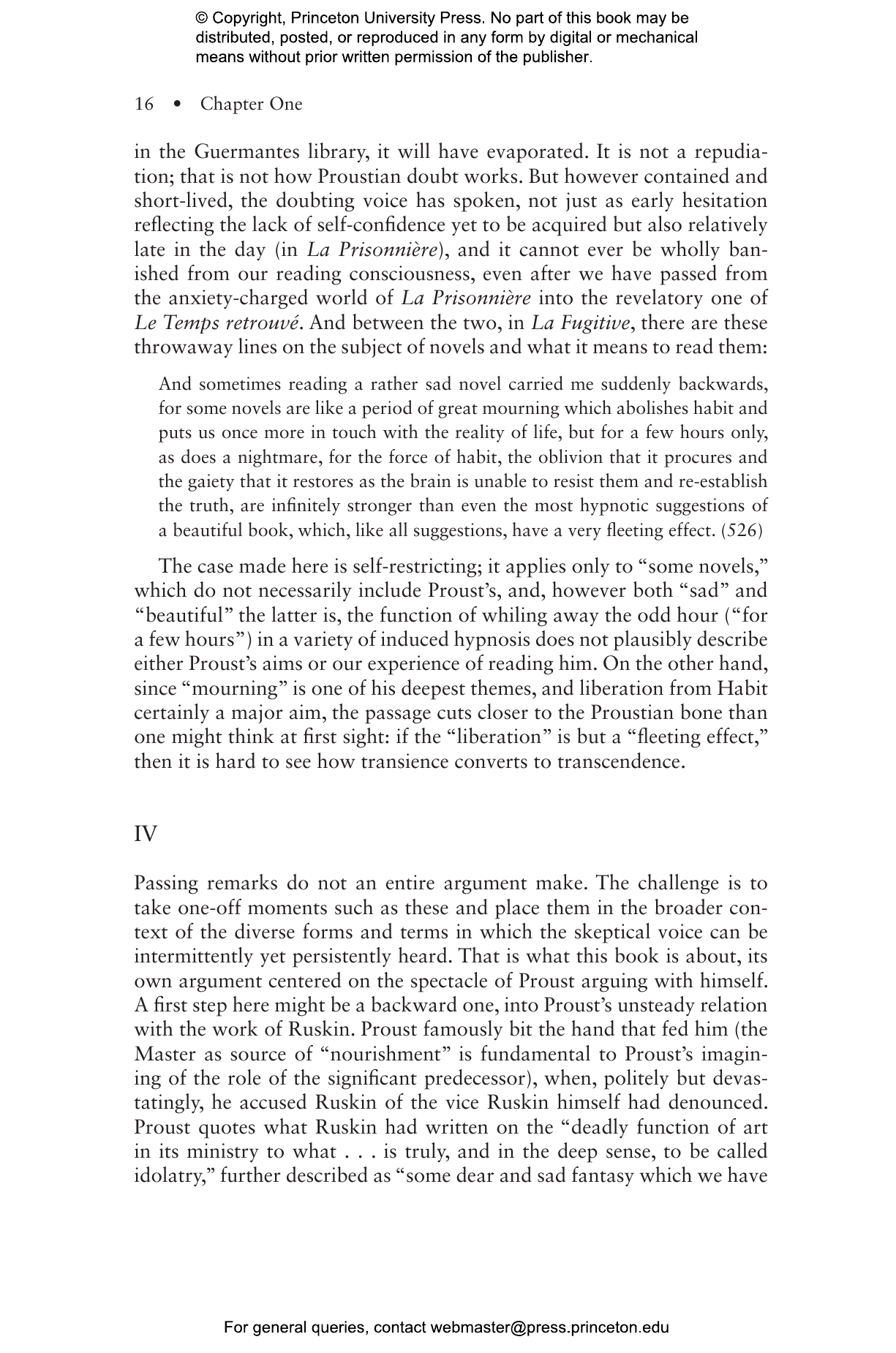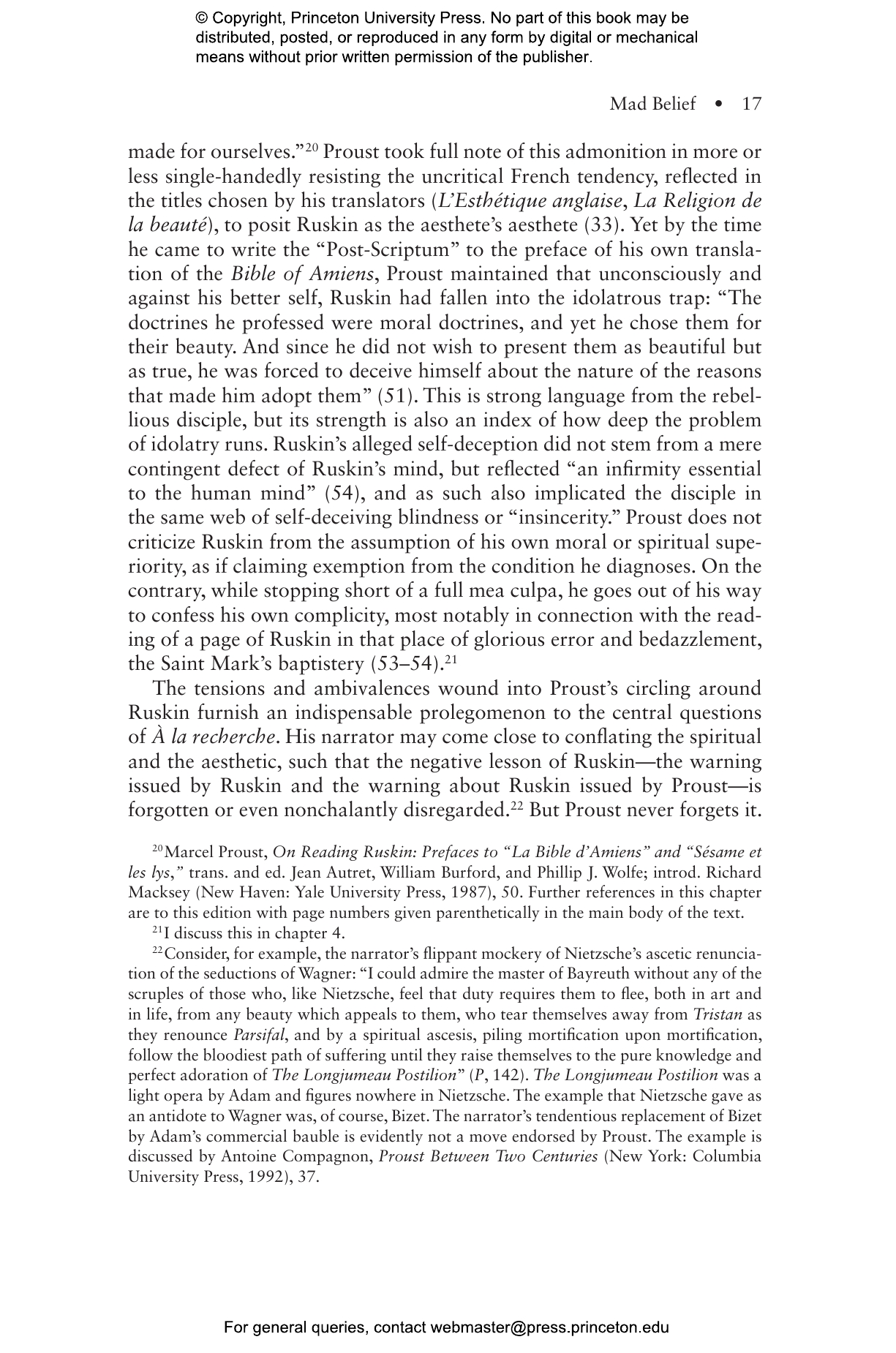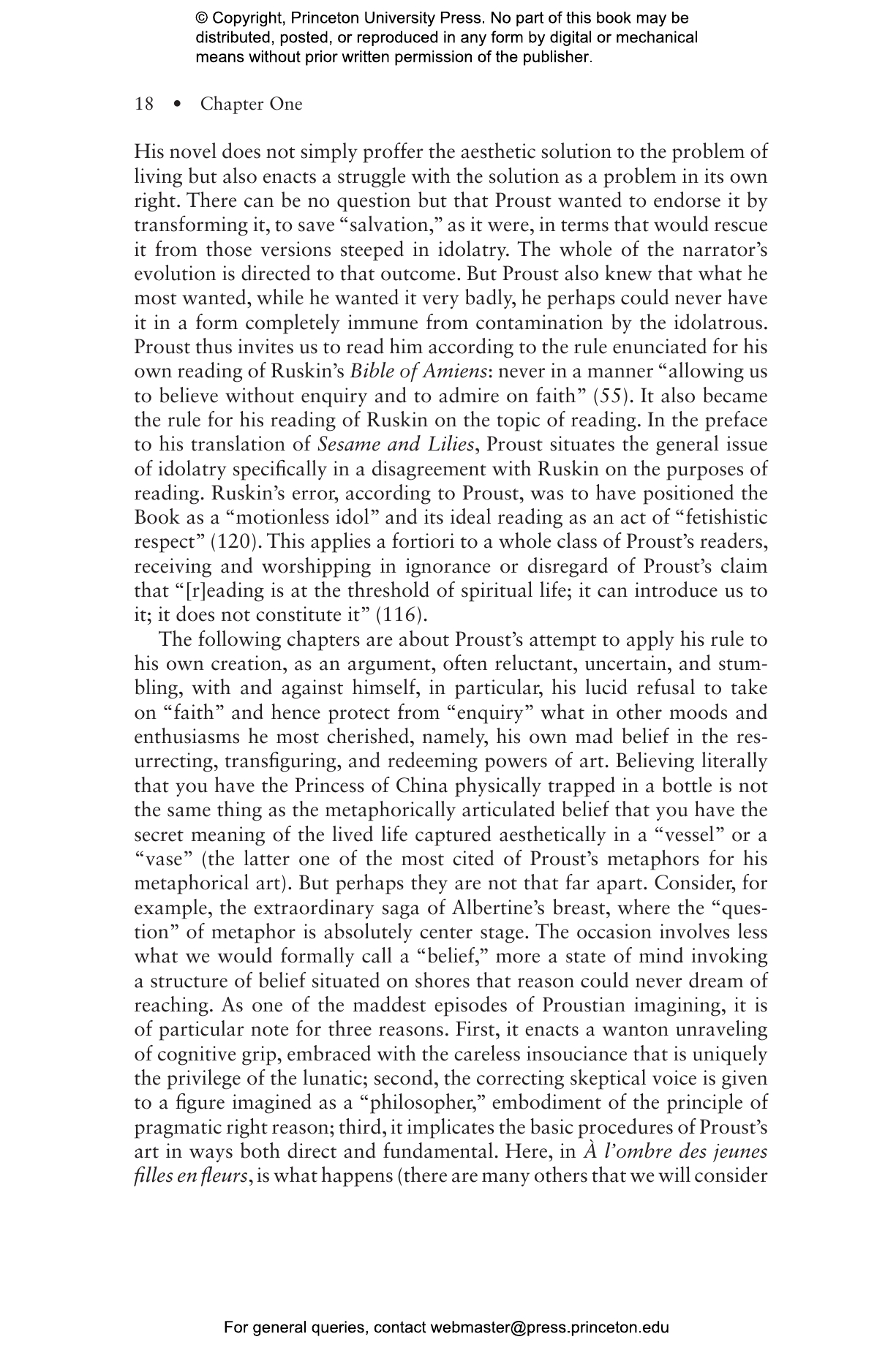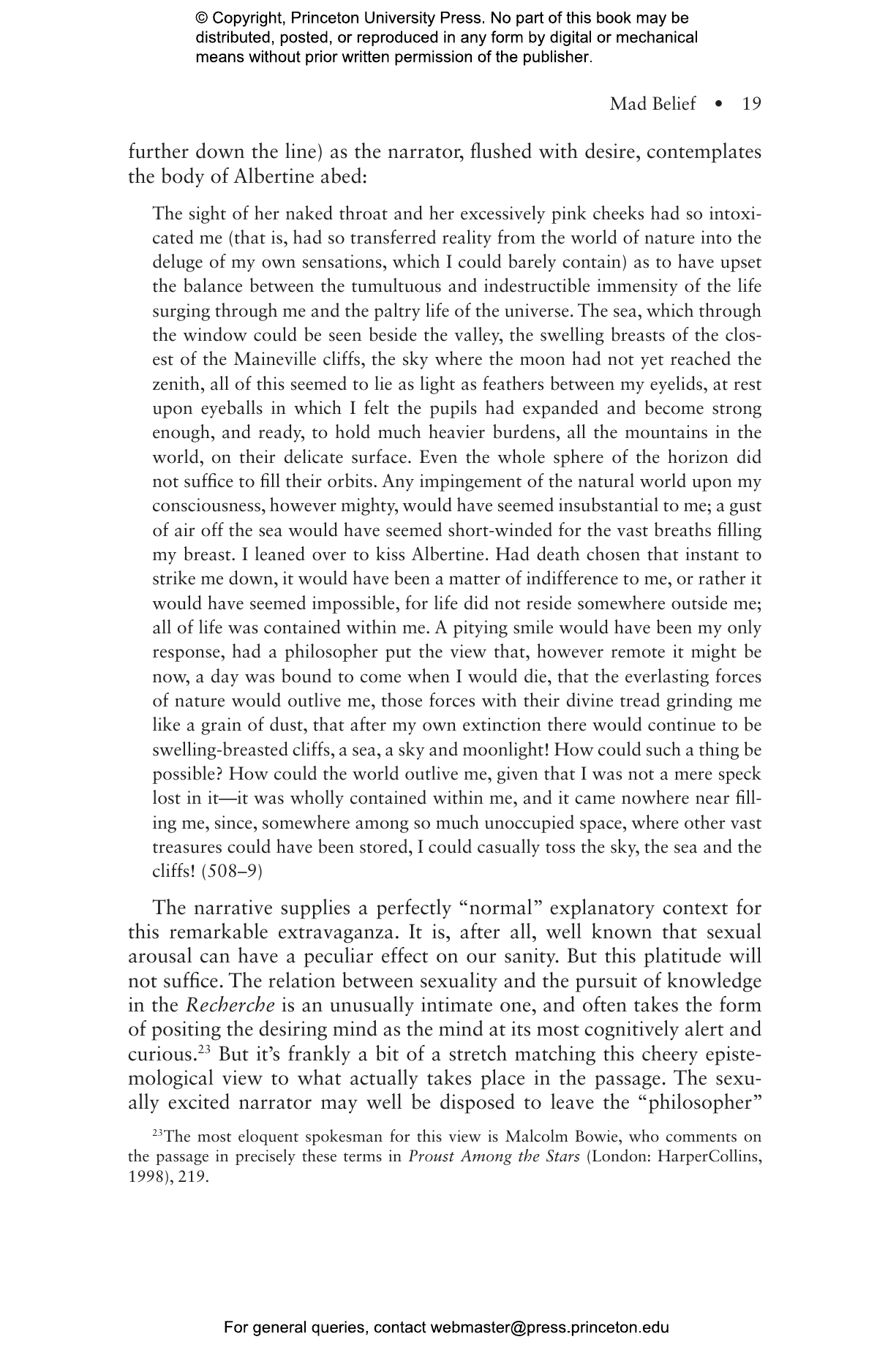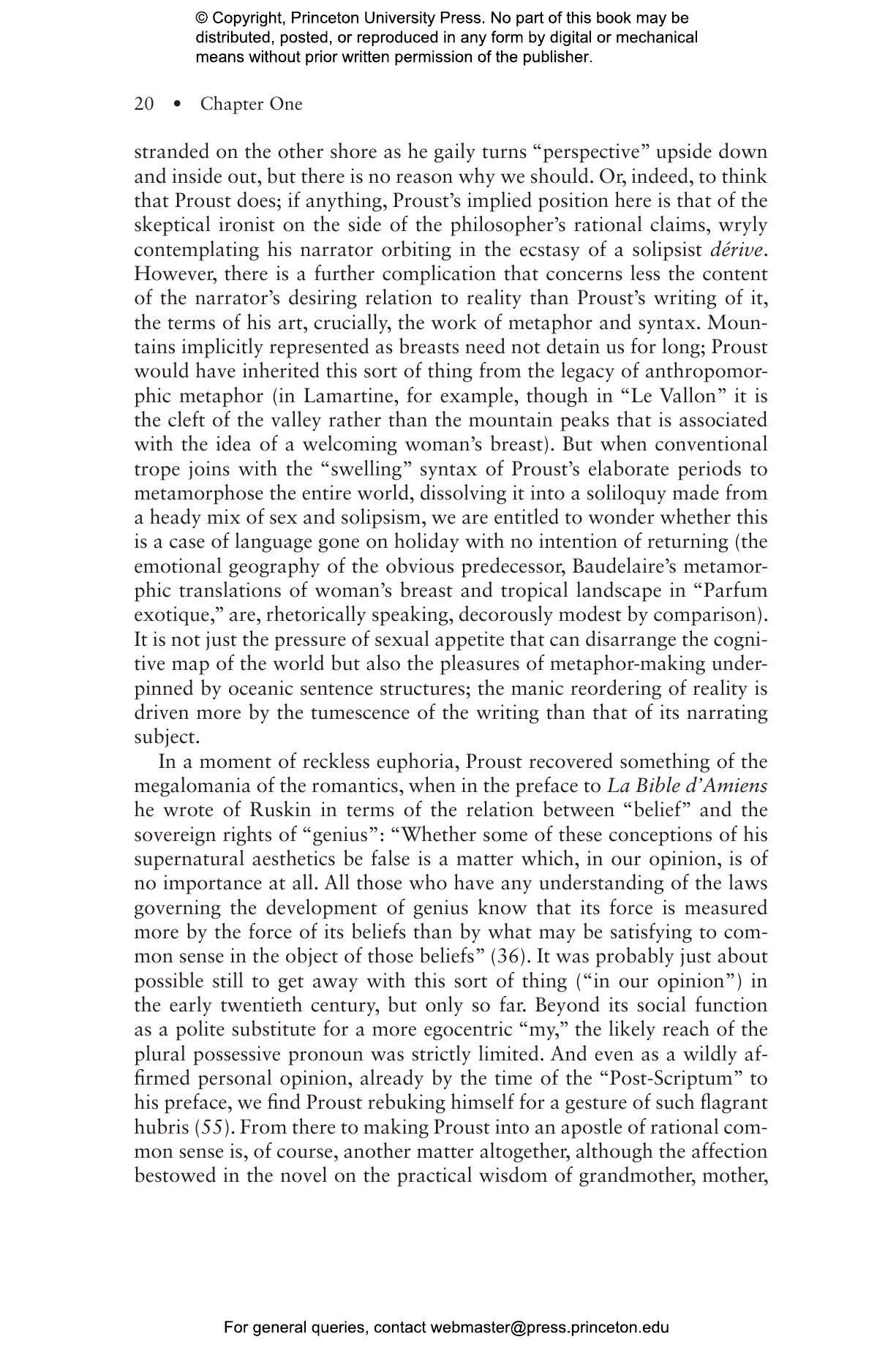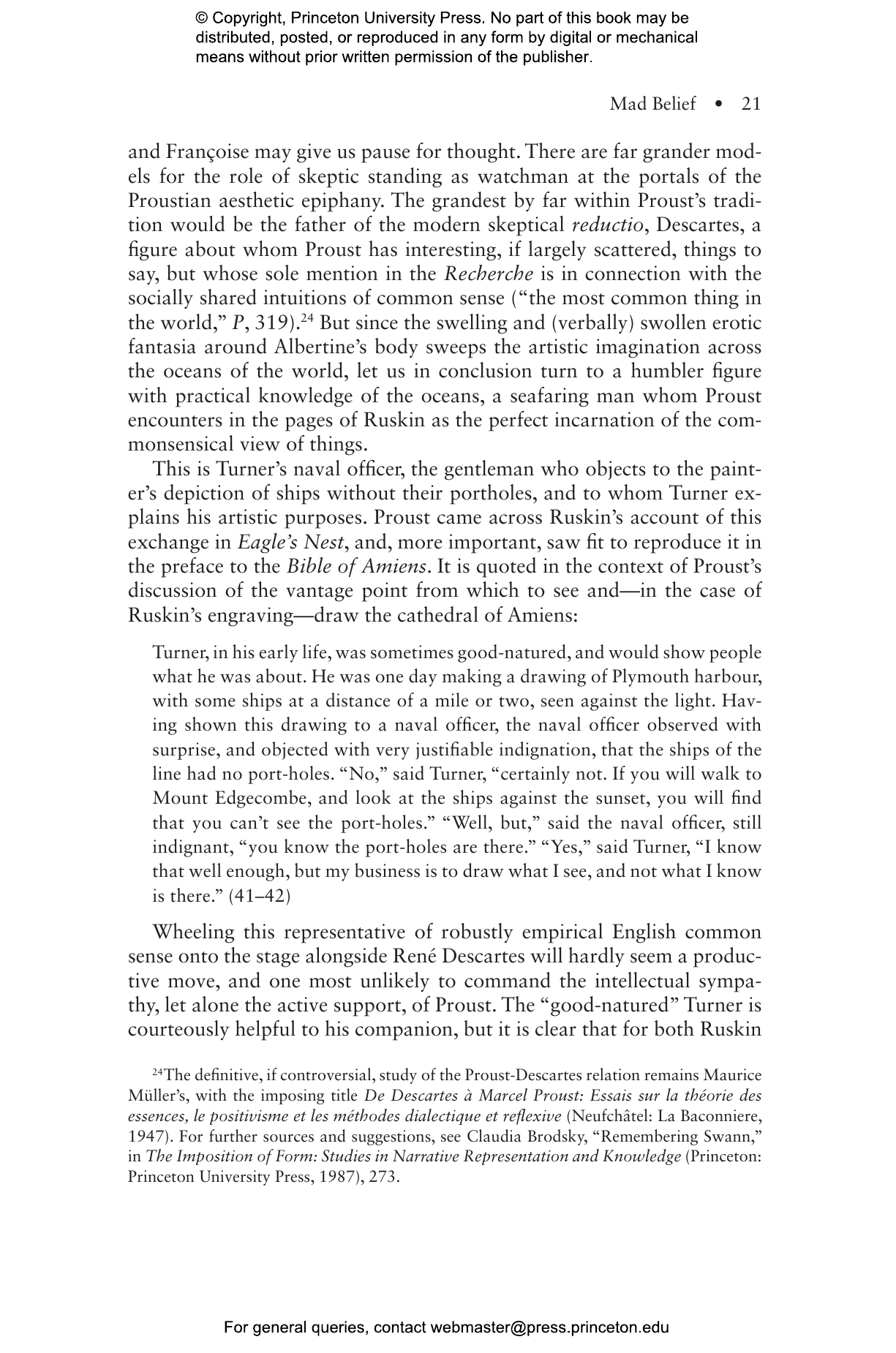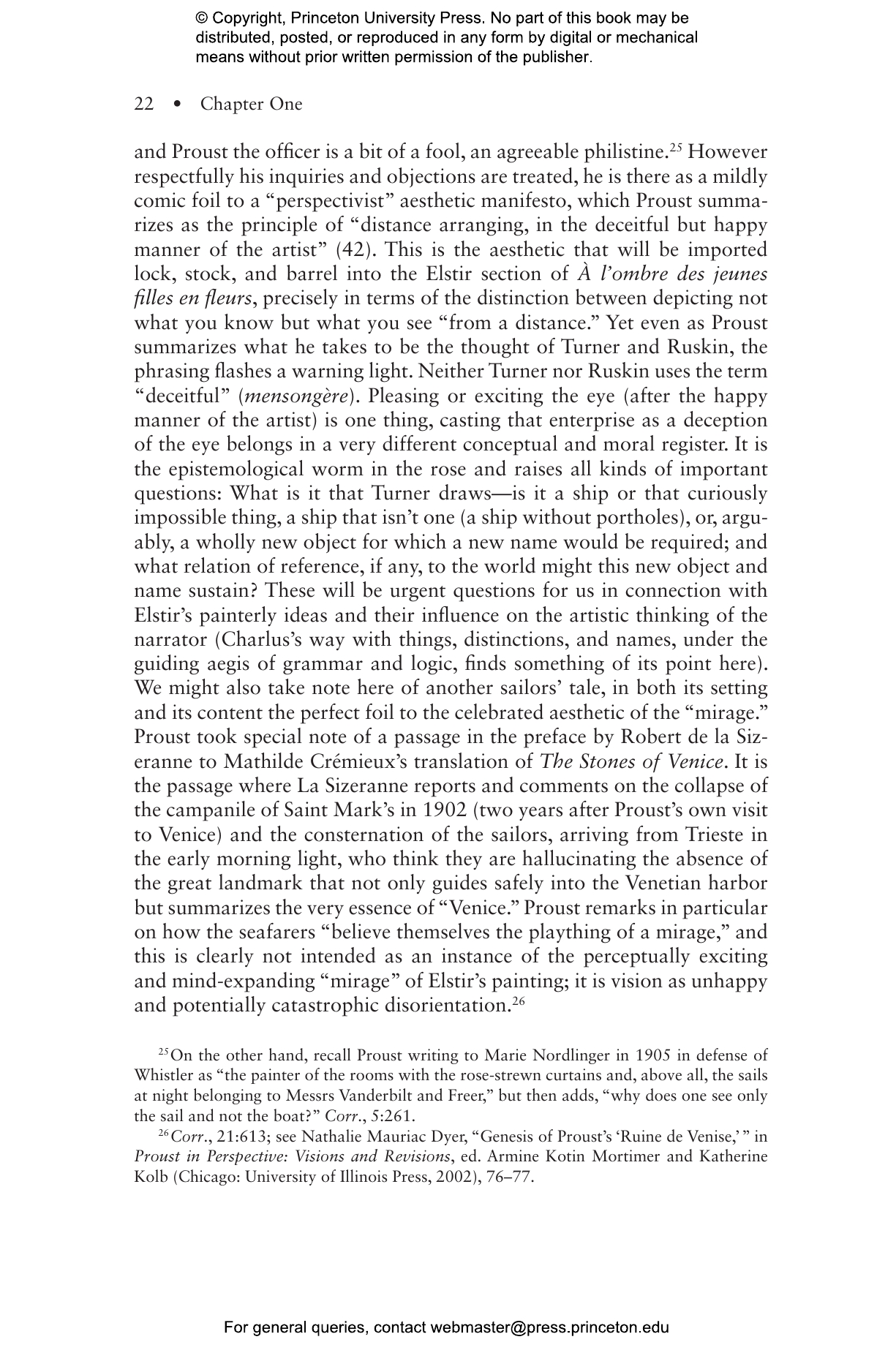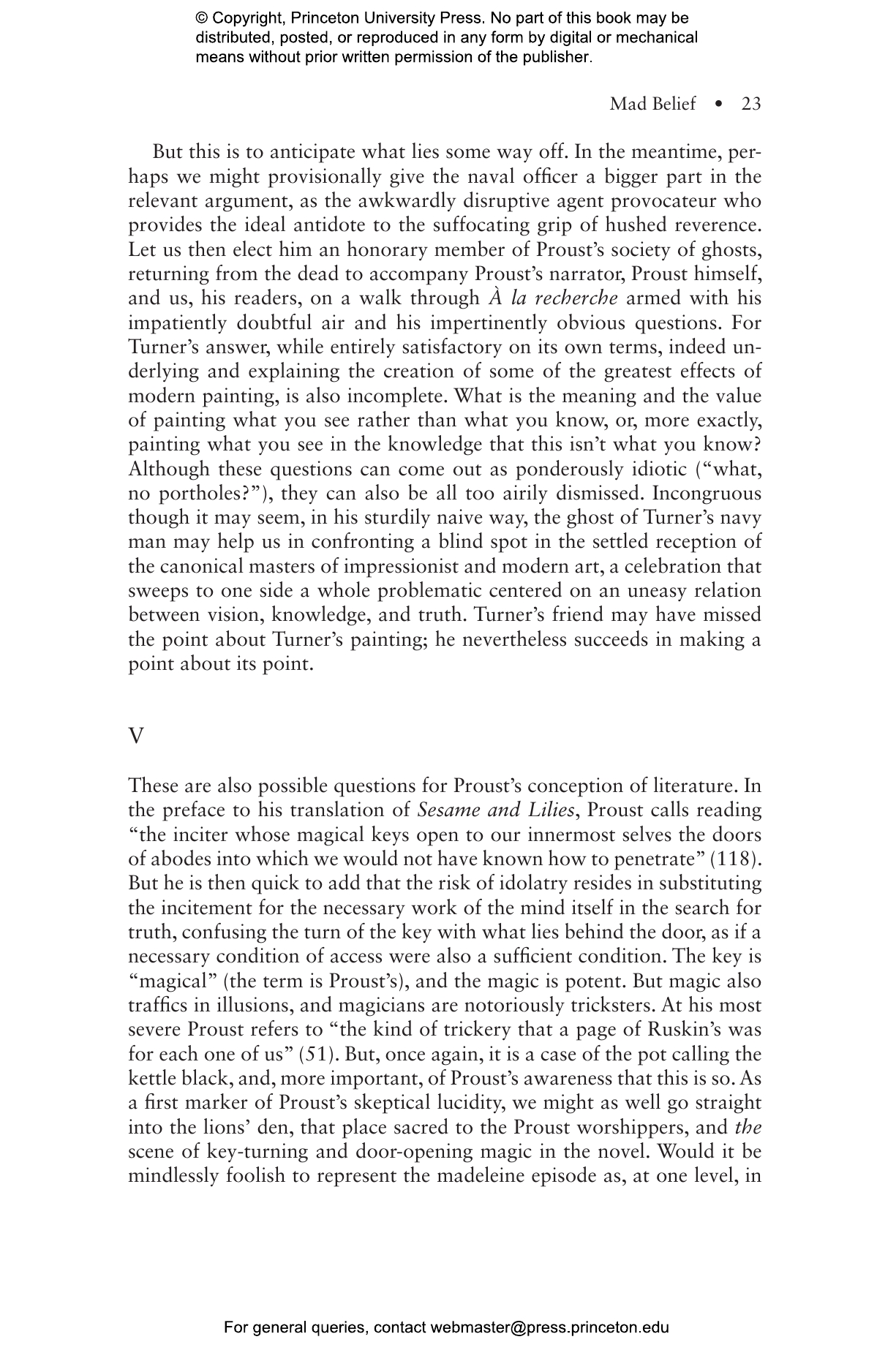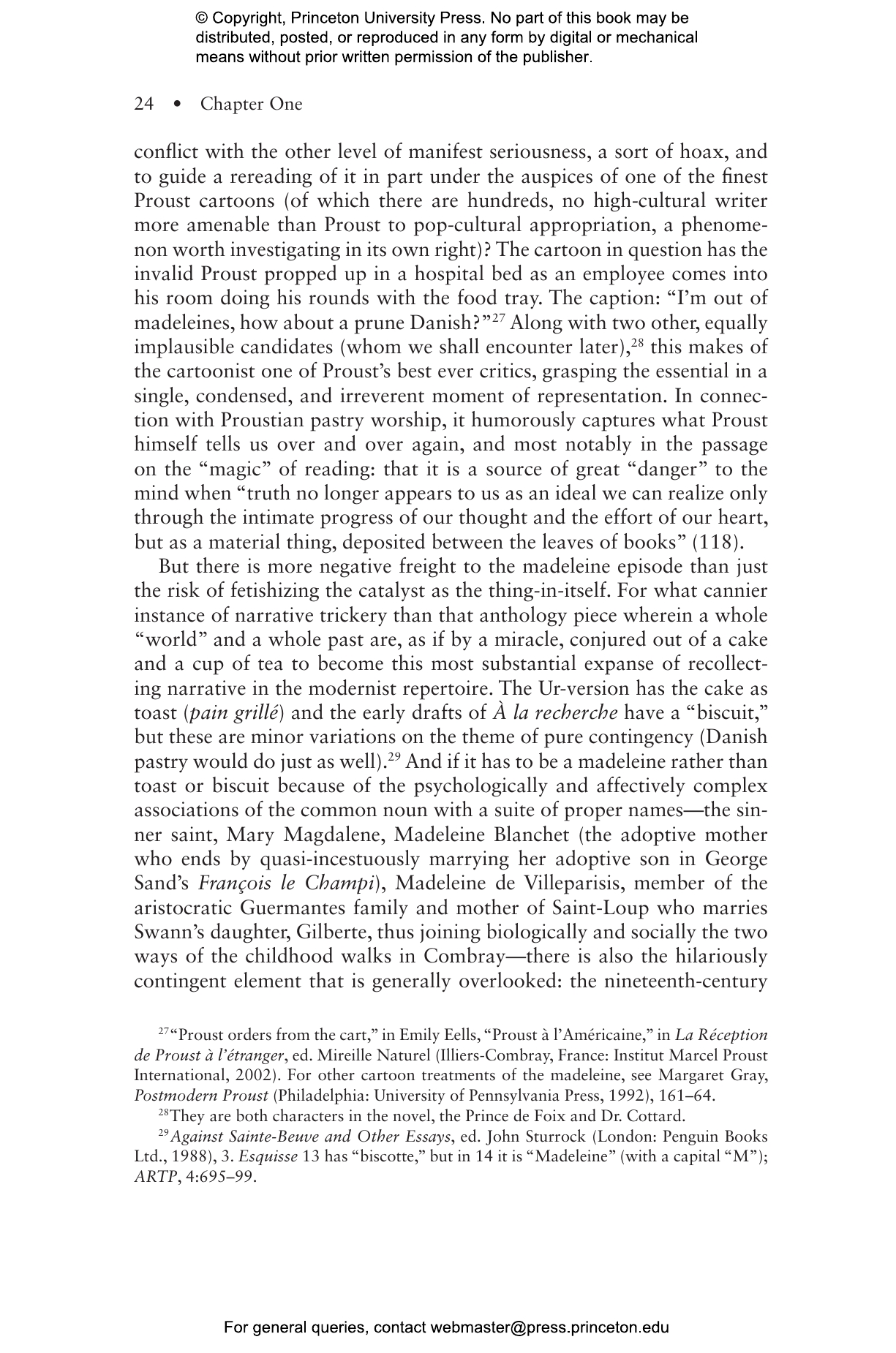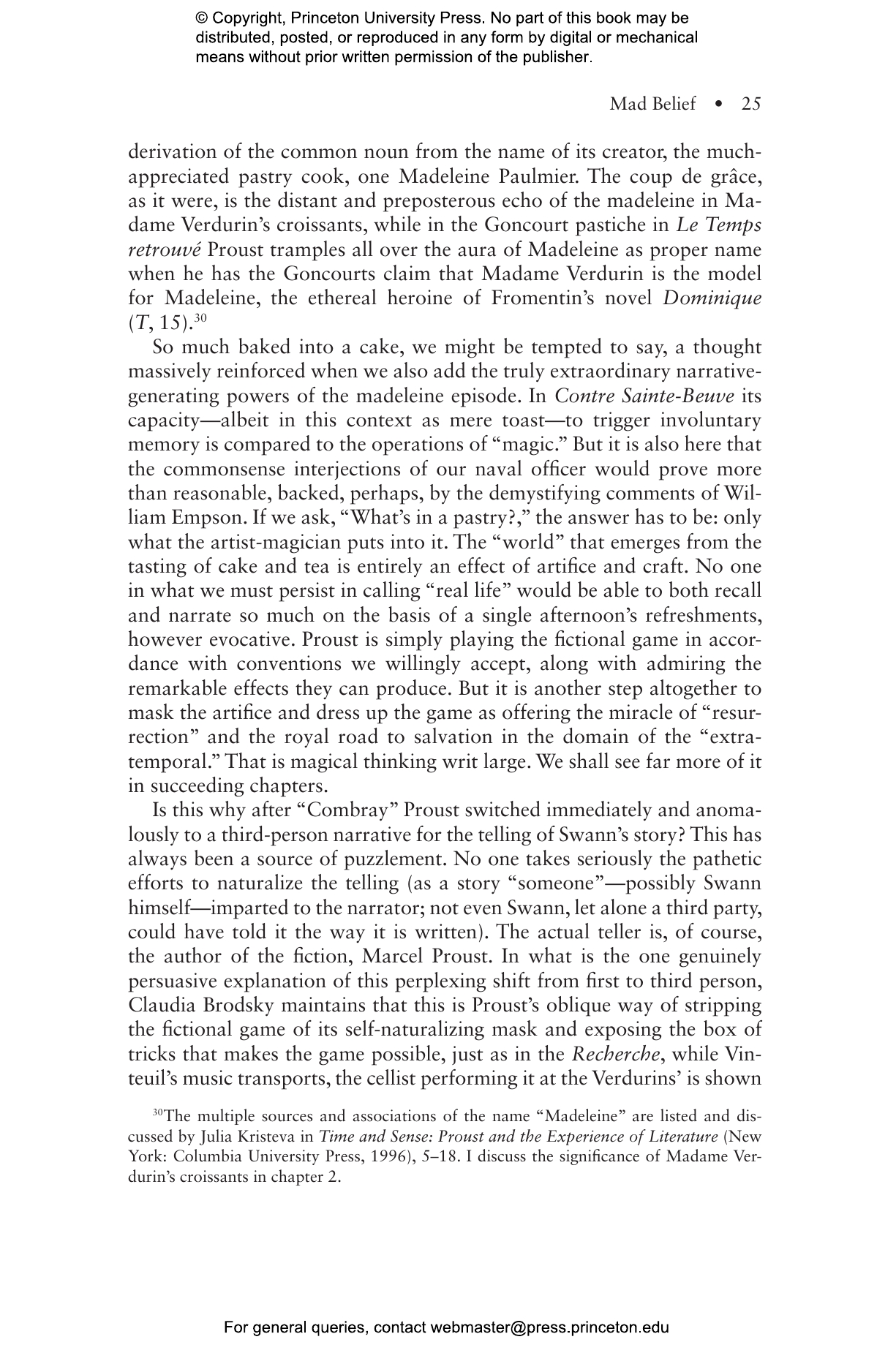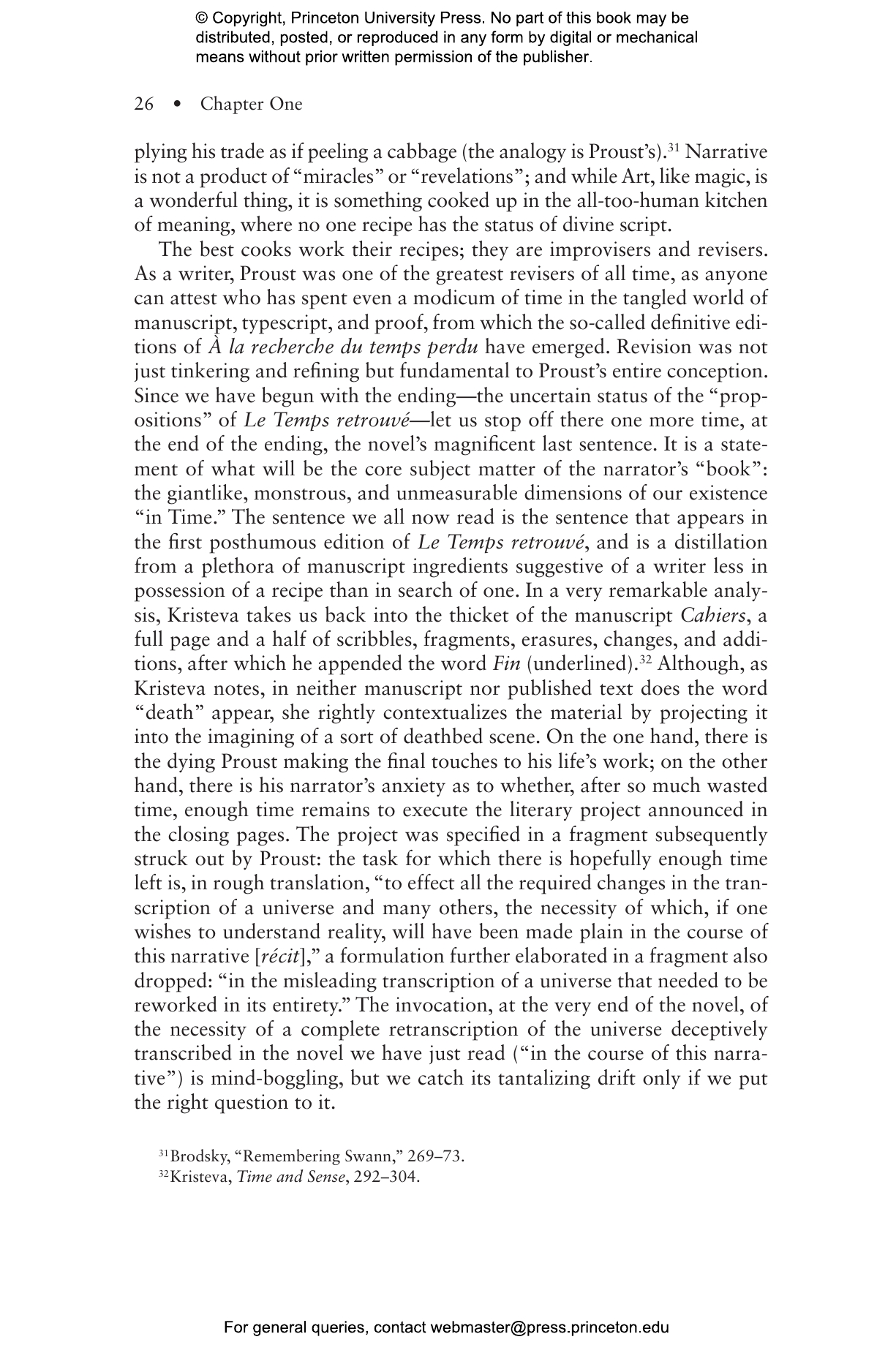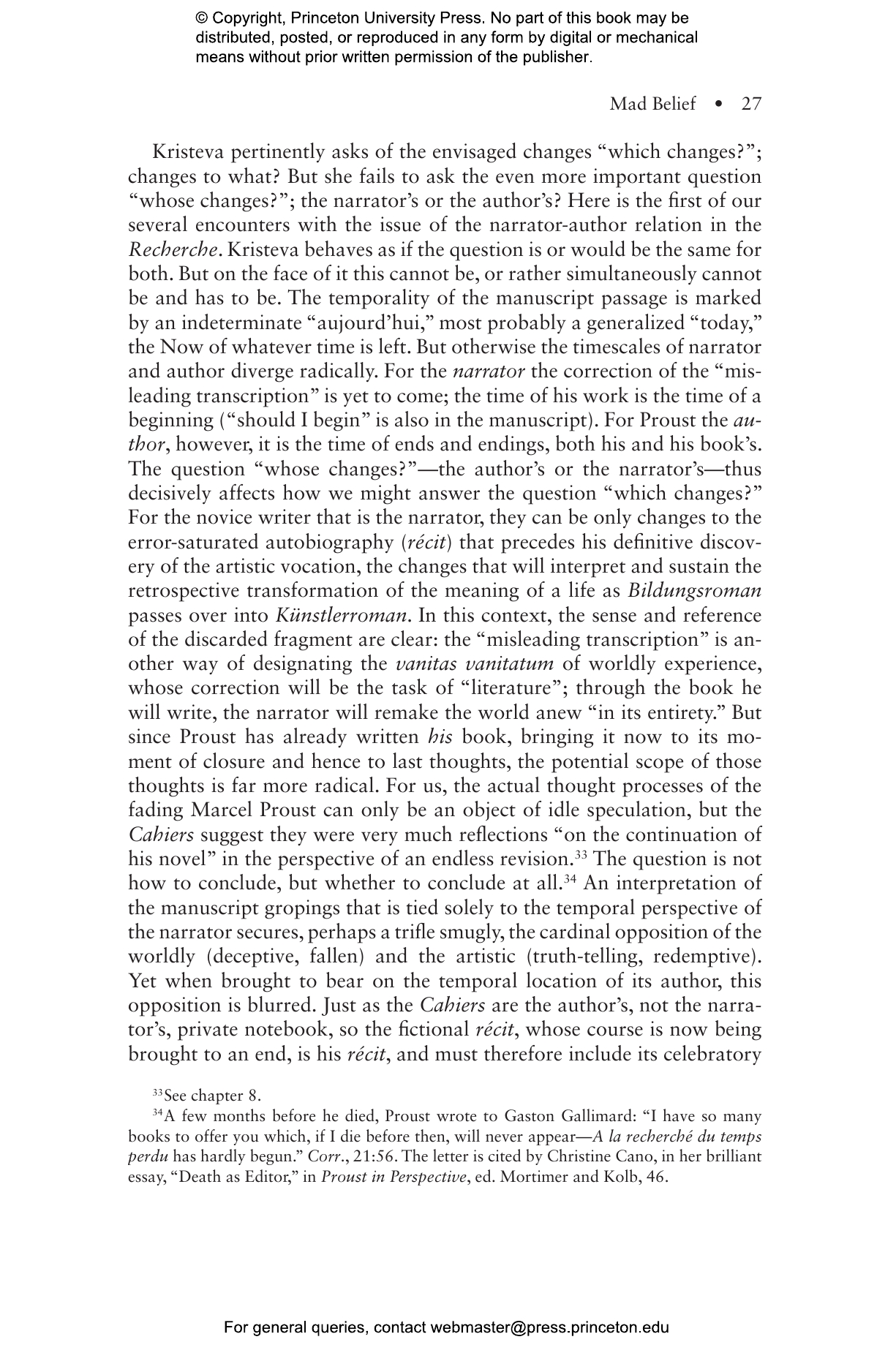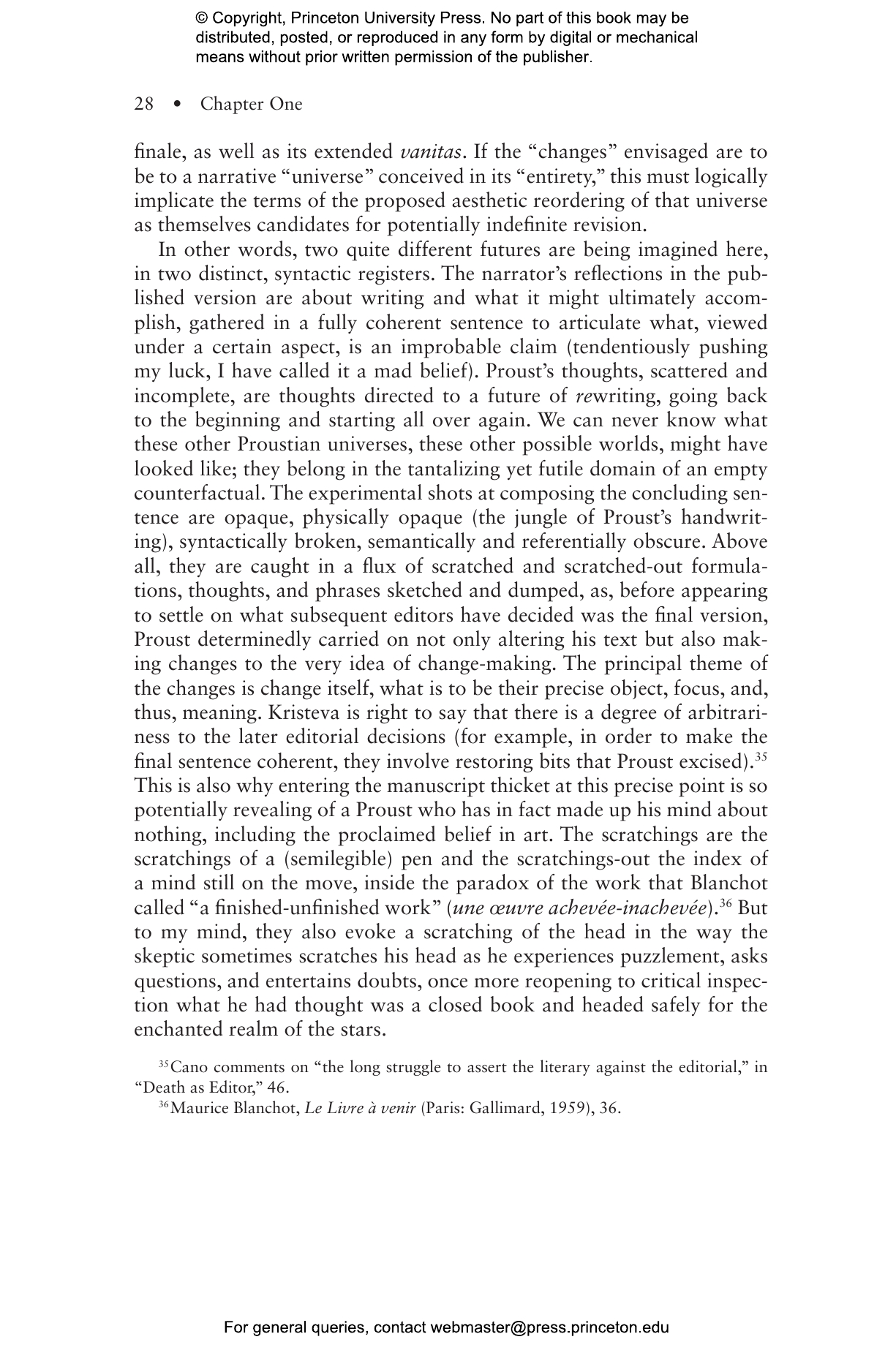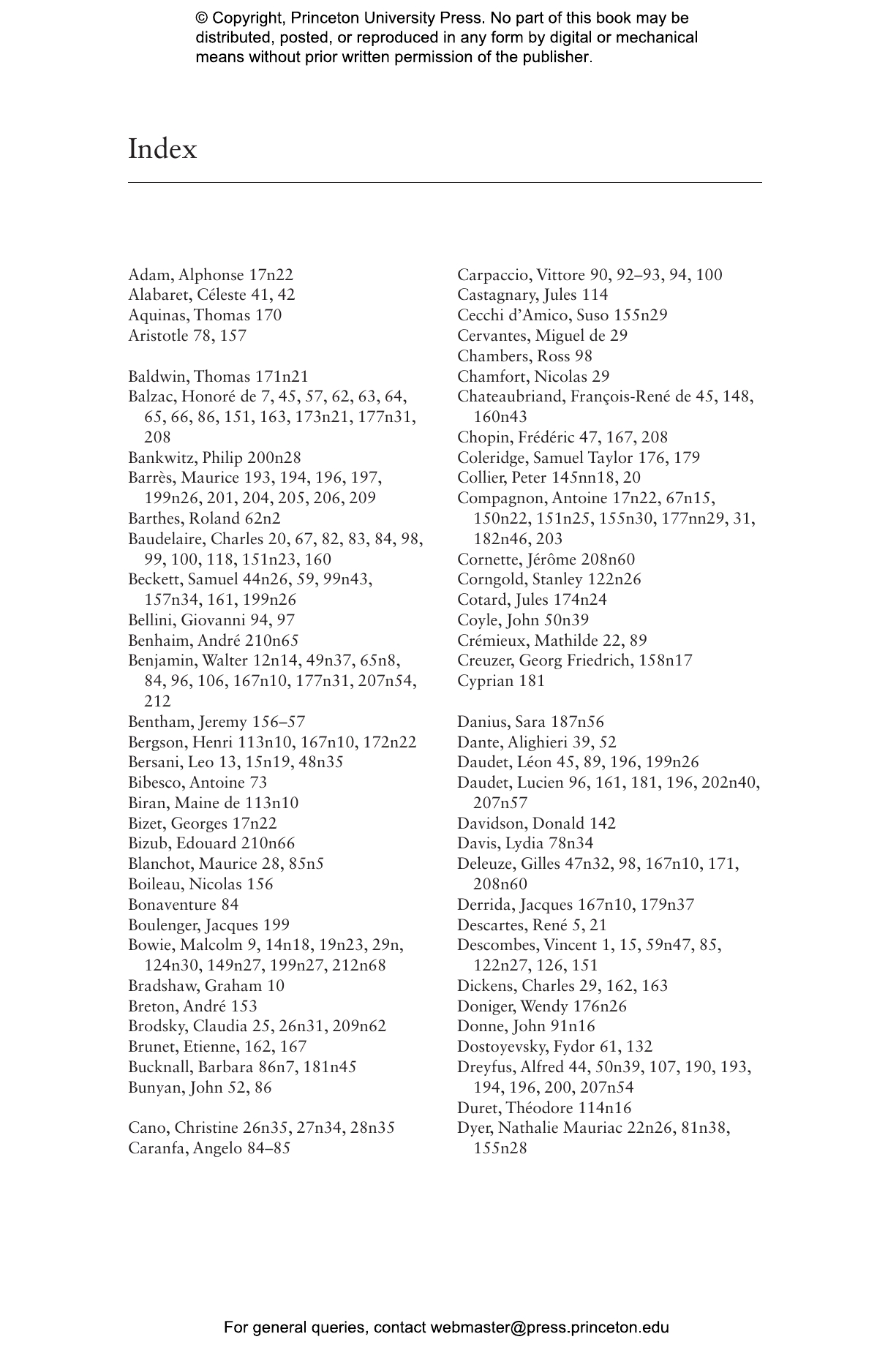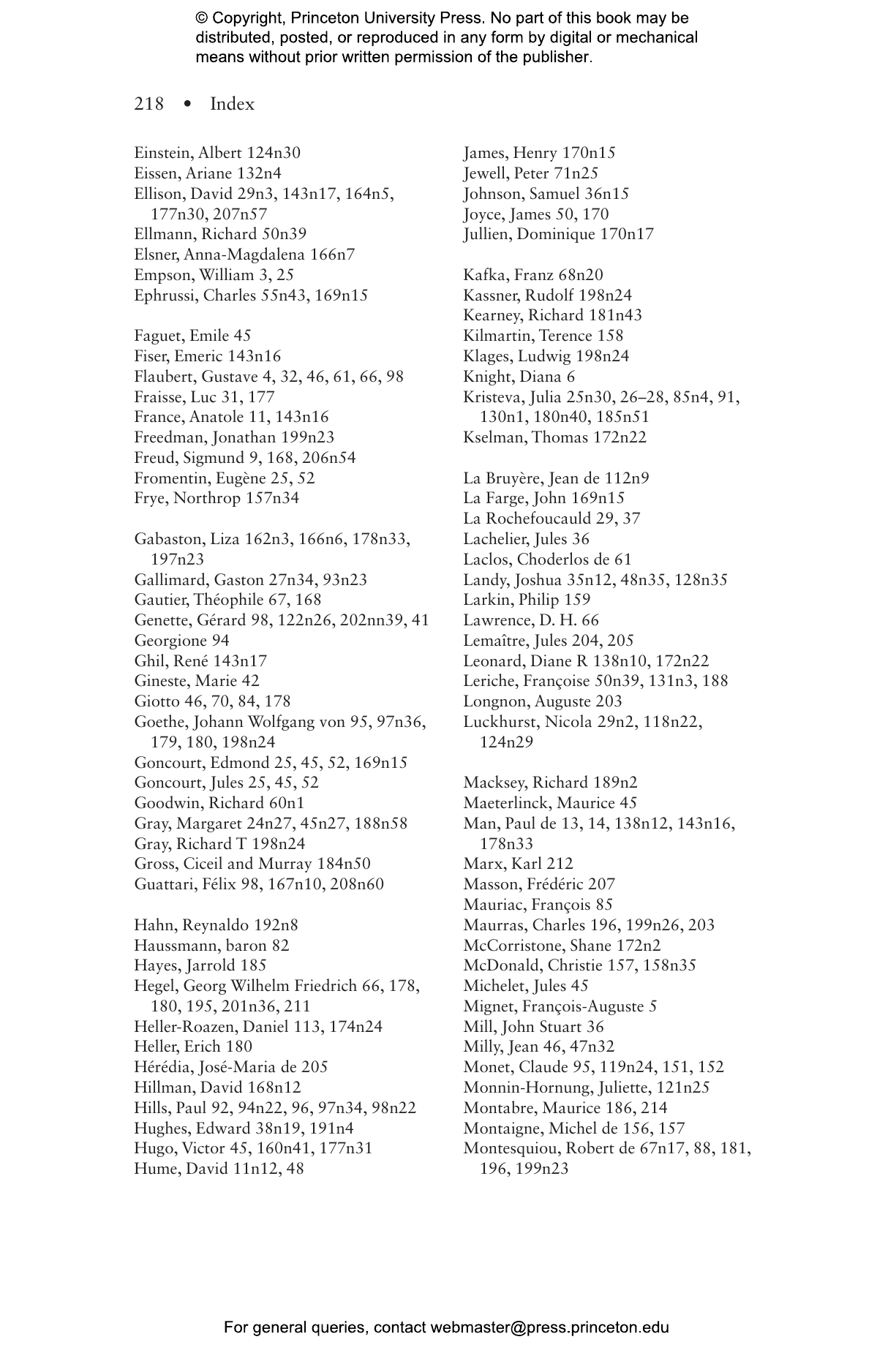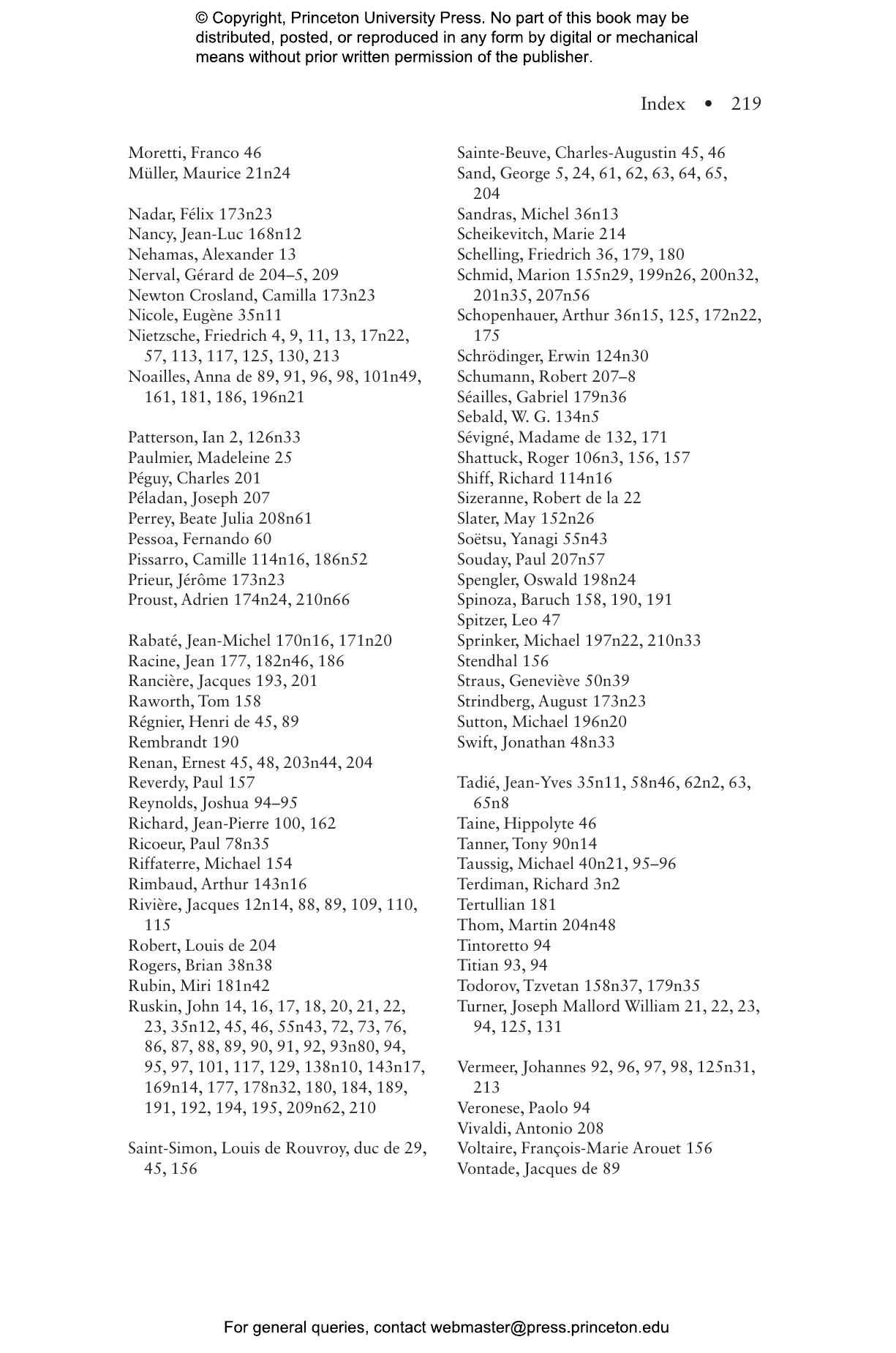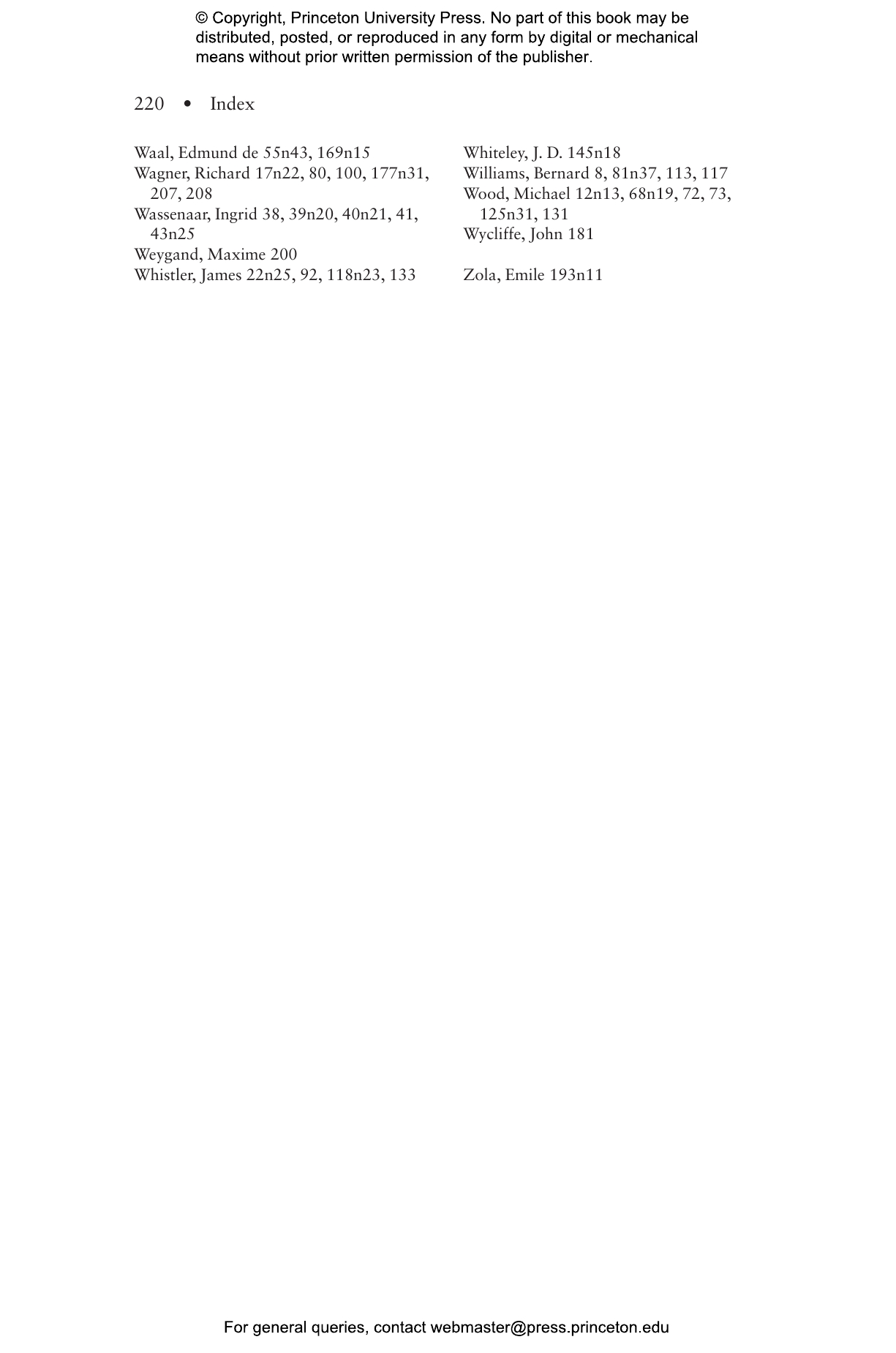Marcel Proust was long the object of a cult in which the main point of reading his great novel In Search of Lost Time was to find, with its narrator, a redemptive epiphany in a pastry and a cup of lime-blossom tea. We now live in less confident times, in ways that place great strain on the assumptions and beliefs that made those earlier readings possible. This has led to a new manner of reading Proust, against the grain. In Mirages and Mad Beliefs, Christopher Prendergast argues the case differently, with the grain, on the basis that Proust himself was prey to self-doubt and found numerous, if indirect, ways of letting us know. Prendergast traces in detail the locations and forms of a quietly nondogmatic yet insistently skeptical voice that questions the redemptive aesthetic the novel is so often taken to celebrate, bringing the reader to wonder whether that aesthetic is but another instance of the mirage or the mad belief that, in other guises, figures prominently in In Search of Lost Time. In tracing the modalities of this self-pressuring voice, Prendergast ranges far and wide, across a multiplicity of ideas, themes, sources, and stylistic registers in Proust’s literary thought and writing practice, attentive at every point to inflections of detail, in a sustained account of Proust the skeptic for the contemporary reader.
Awards and Recognition
- Winner of the 2015 R. Gapper Prize, Society for French Studies
Christopher Prendergast is professor emeritus of French at the University of Cambridge, and a fellow of King's College and the British Academy. He is the general editor of the Penguin translation of In Search of Lost Time.
"[A] deliciously rich interrogation of the French novelist's oeuvre. . . . Prendergast has baked a millefeuille of a book here, crisp, rich and multilayered. Read it for its exposition of jokes, of magic, enchantment and spectrality, of the Proustian body (a place 'where we live but not where we are at home'), as well as for its awkward questions. Refusing to treat Proust as a celebrant, this book interrogates his gloriously mad project, while also amply fulfilling its intention to 'stay alert, with one of the most alert minds of modern literature.'"—Mary Bryden, Times Higher Education
"Prendergast . . . has produced a study that makes readers want to take a fresh look at the work—perhaps the best accomplishment for literary criticism."—Edward Ousselin, French Review
"From Bergson to Sebald, Prendergast's new book demonstrates his brilliant reach. Delving into the smallest details and largest ideas, as well as Proust's own 'truth written with the aid of figures,' this investigation of his skeptic perspective is as deep as it is wide."—Mary Ann Caws, author of Marcel Proust
"Christopher Prendergast extracts new and original meanings out of the best-known pages in Proust. This is the rewarding upshot of close and perspicuous readings that reveal ambiguities and paradoxes in passages whose interpretations are often taken for granted. Prendergast's admiration, far from blinding him, leads to his discovering the strength in Proust's loose ends."—Antoine Compagnon, Collège de France and Columbia University
"Through exemplary close reading and remarkable attention to textual detail, this book offers a high-powered critical argument that essentially pits Proust against himself—the romantic aesthete against the ironic doubter, the writer who conquers time against the one who understands how thoroughly lost it can be. This work will challenge and alter many current readings of Proust and, by implication, other writers."—Michael Wood, Princeton University
"In Mirages and Mad Beliefs, Prendergast identifies a skeptical strain in Proust's writing marking the novelist's resistance to his own apparent beliefs. This is the work of a major critic at the top of his game: witty, profound, and highly readable, while meeting top standards of scholarship in its display of erudition and respect for sources. It deserves to be widely read."—Michael Sheringham, University of Oxford
